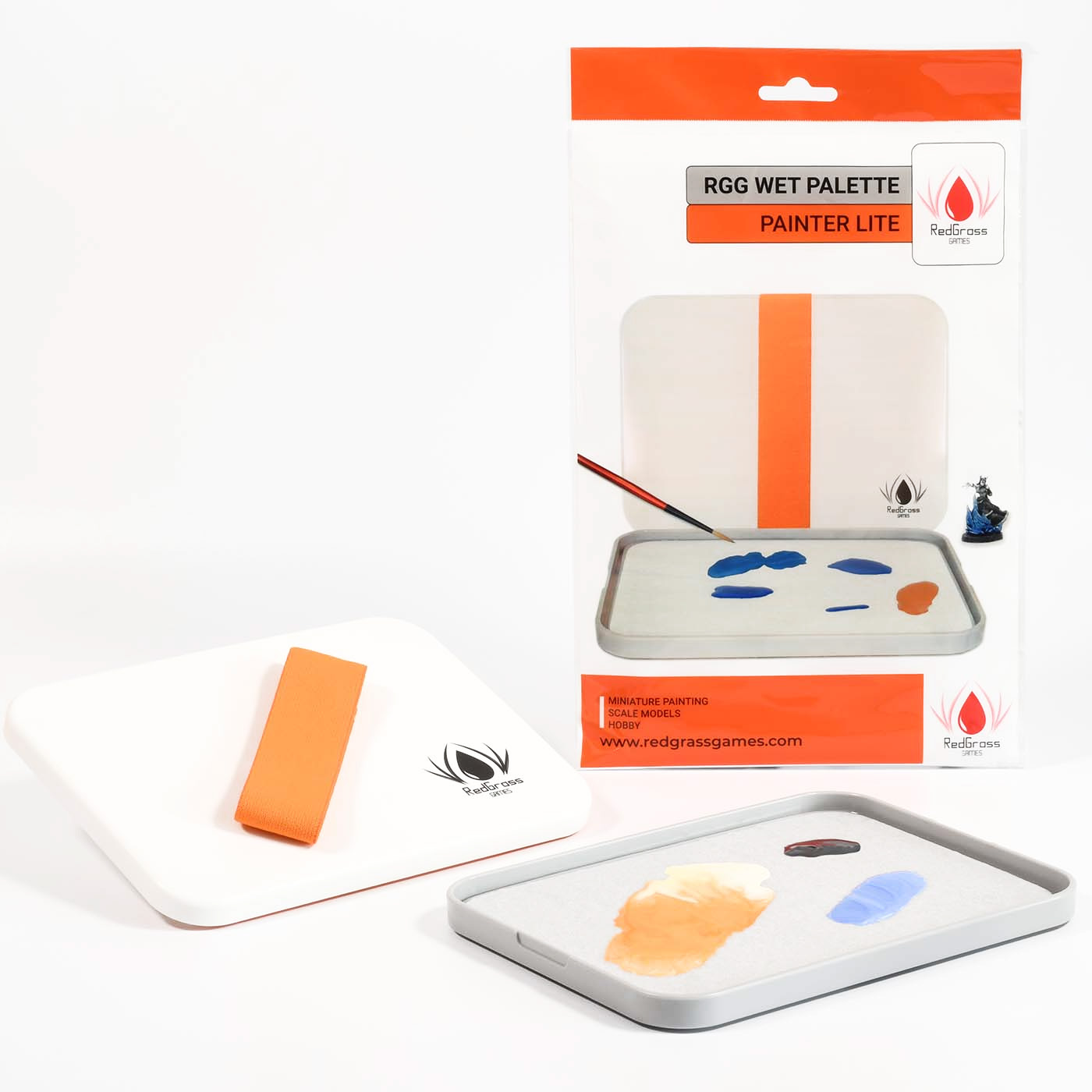
Follow our quick instructions to set up your Everlasting Wet Palette, whether it's the Painter Lite, Studio XL Lite, or V1.
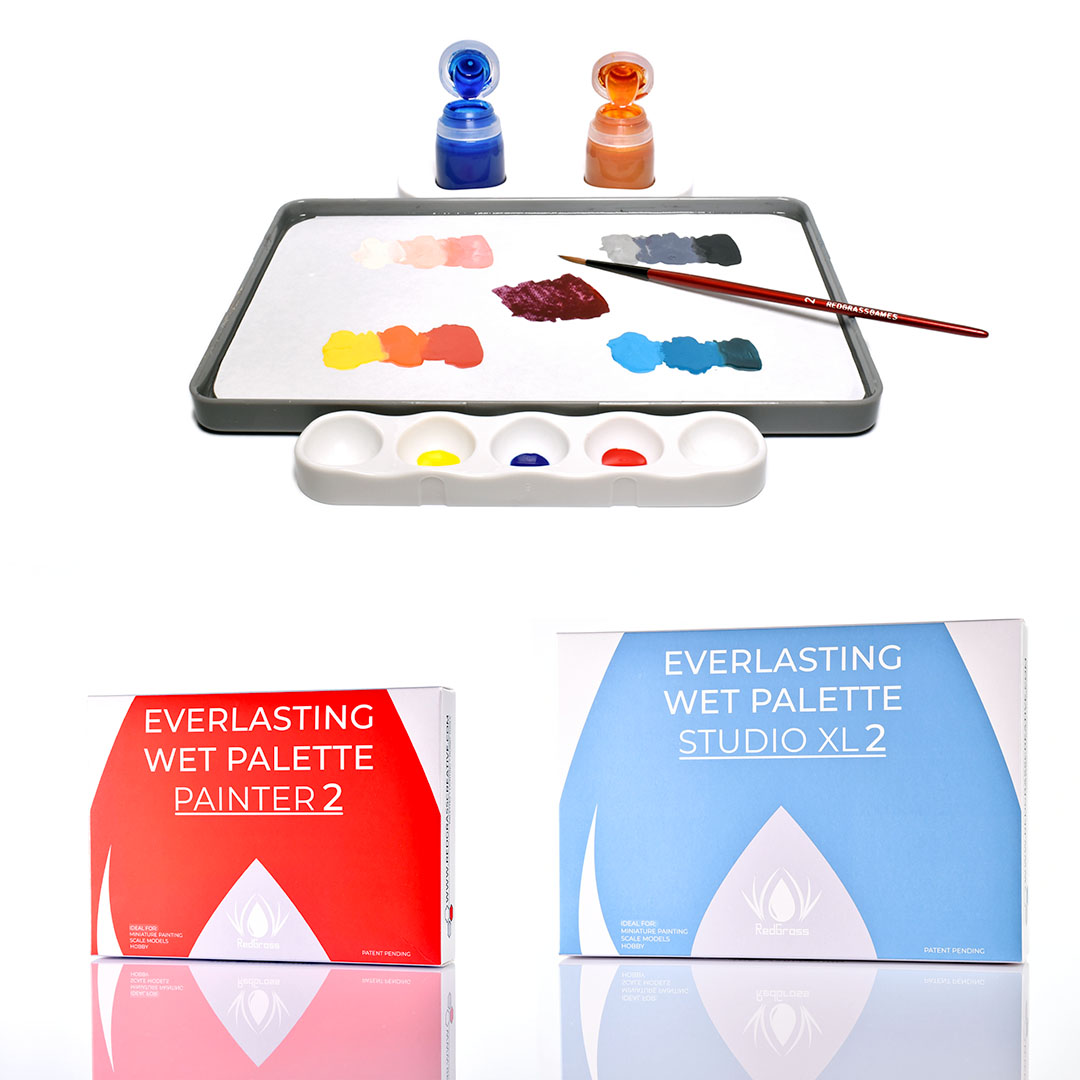
Set up your Everlasting Wet Palette v2 in seconds. Learn how to clean and maintain the reusable membrane.
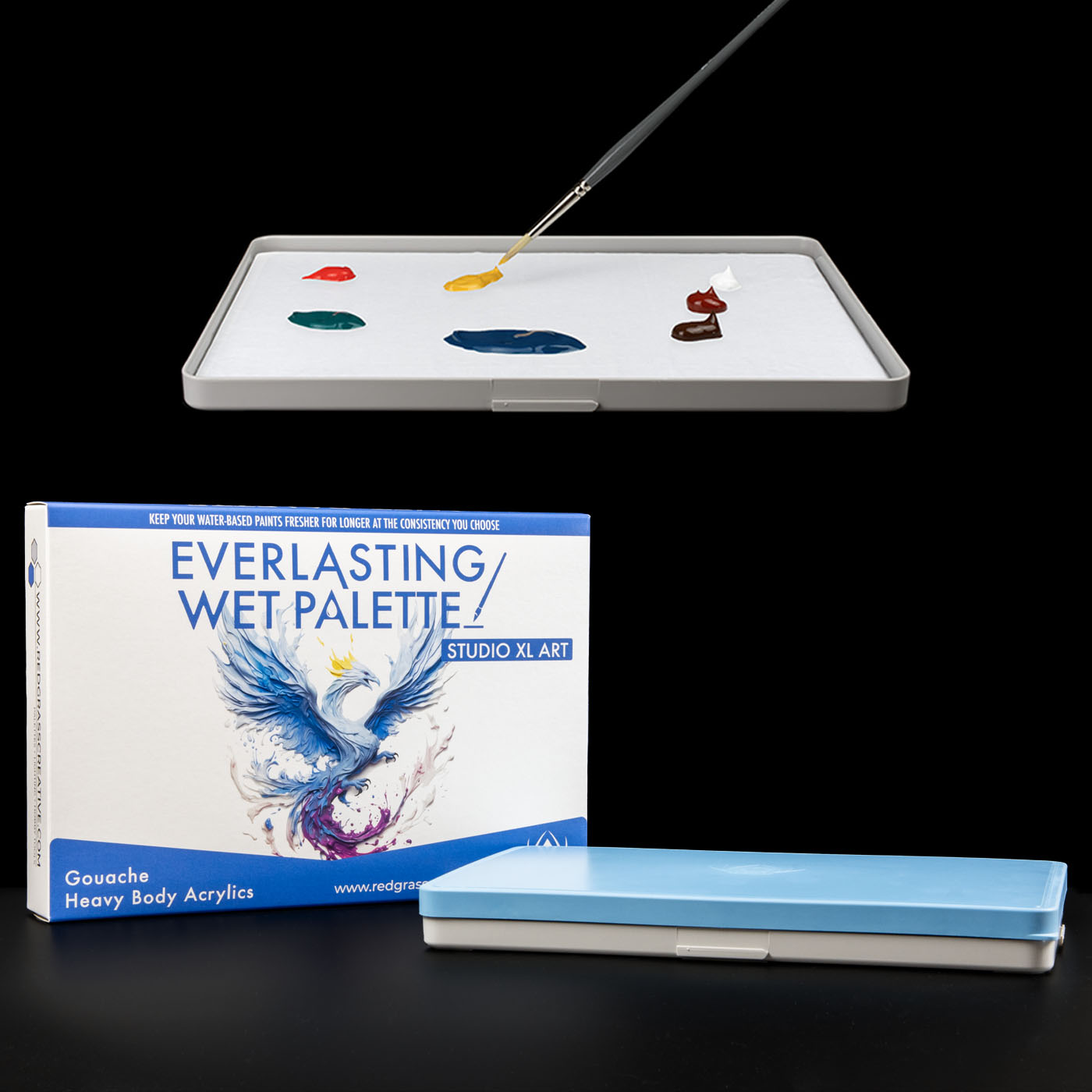
Quickly set up your Everlasting wet palette Studio XL ART and prepare it for your next canvas painting.
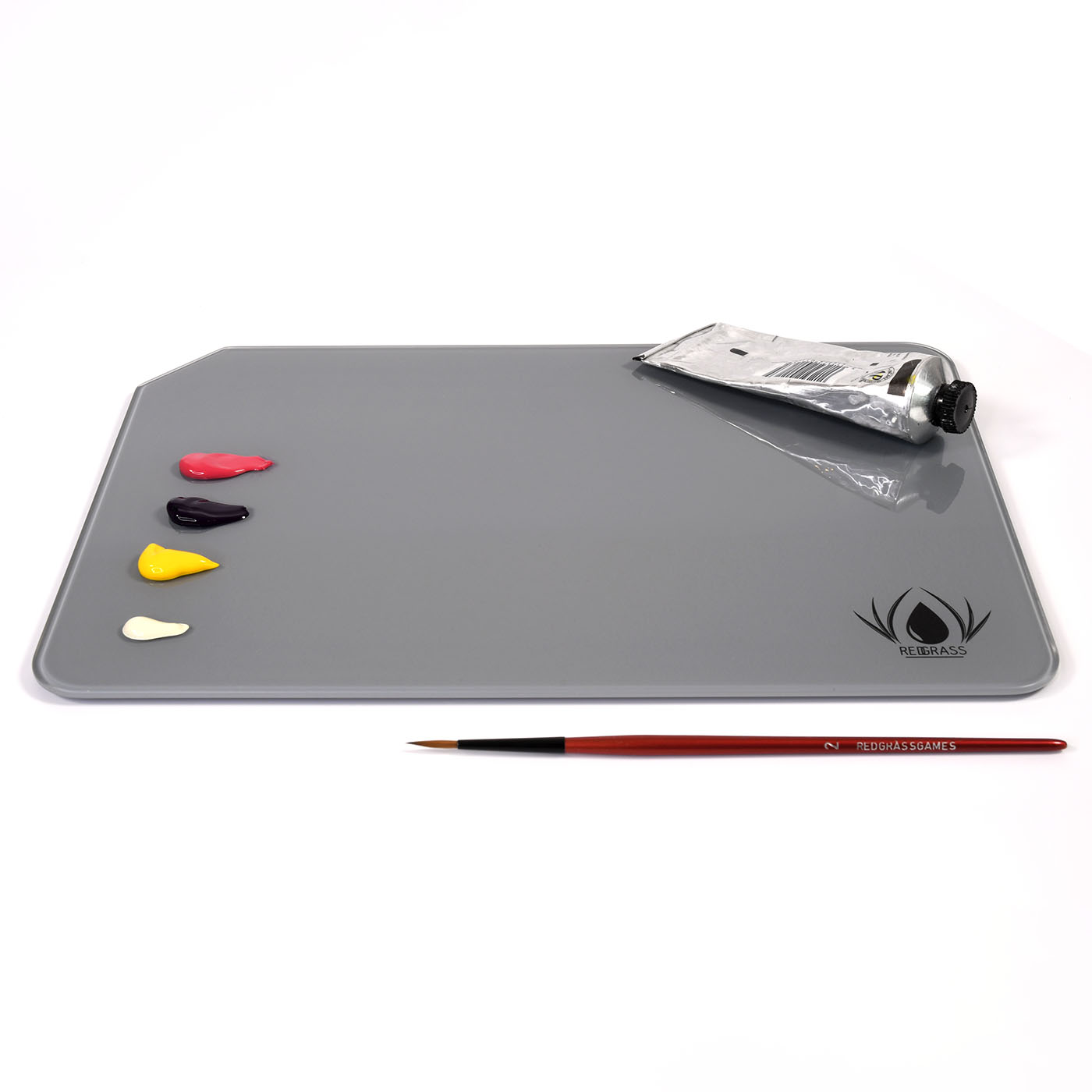
Cleanable and reusable. Follow our care instructions to keep your glass palette always ready.
A wet palette is an essential tool for every painter. It is the surface where you will mix your paint, try different paint consistencies and master all kinds of techniques. Its main purpose is to keep your acrylic paint fresh for hours or even days within a sealable wet palette.
The Redgrass wet palette is designed with the best materials possible and a proprietary patented hydration system. Everything has been designed to help you focus on enjoying your painting sessions.
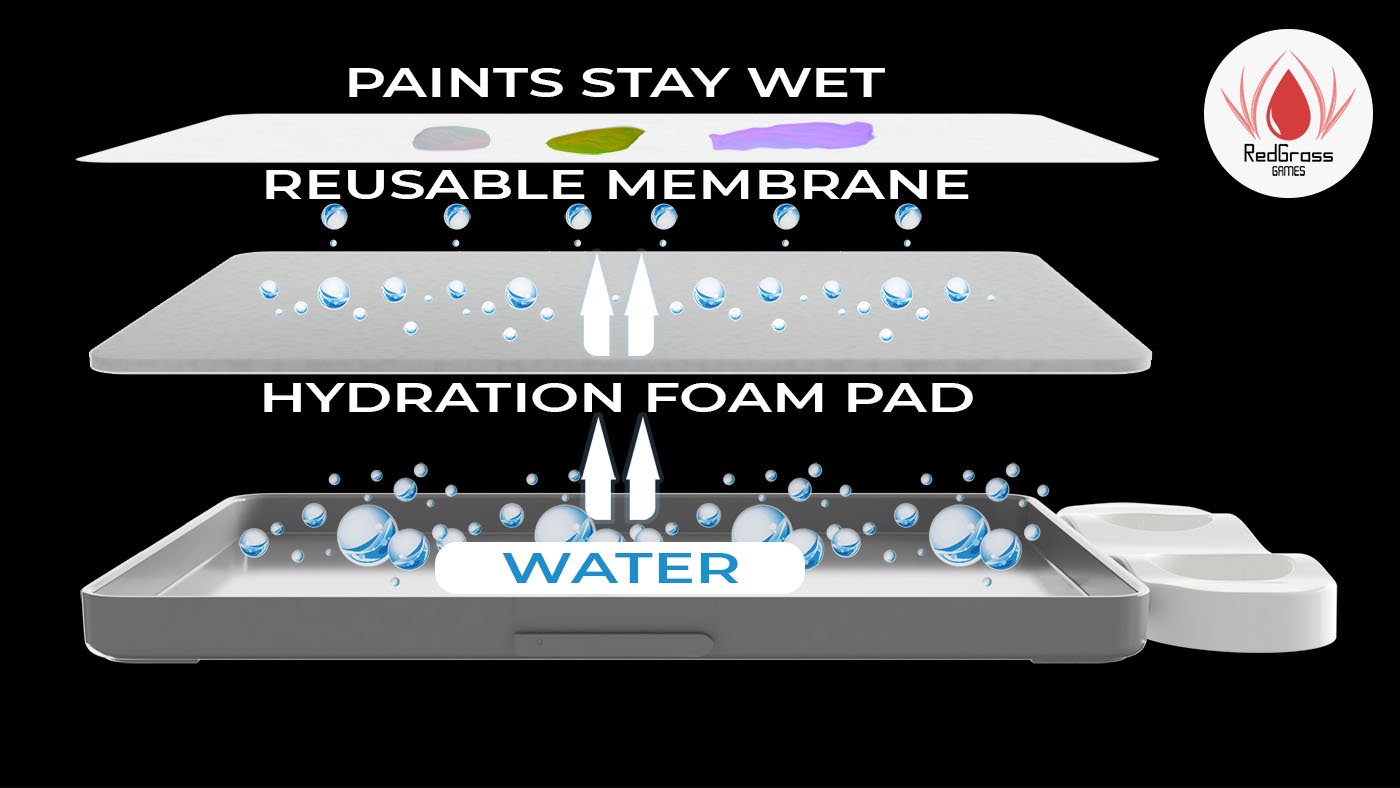
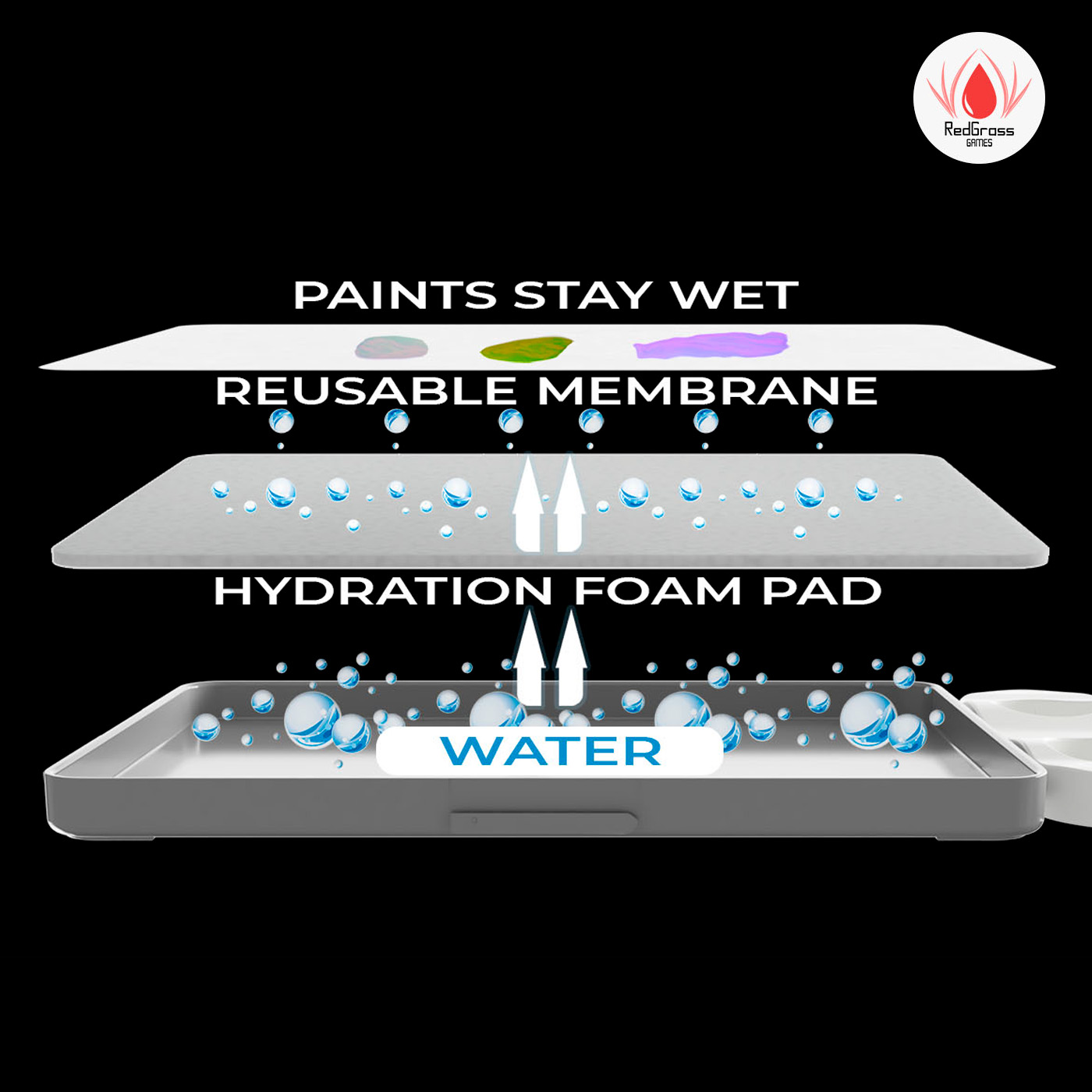
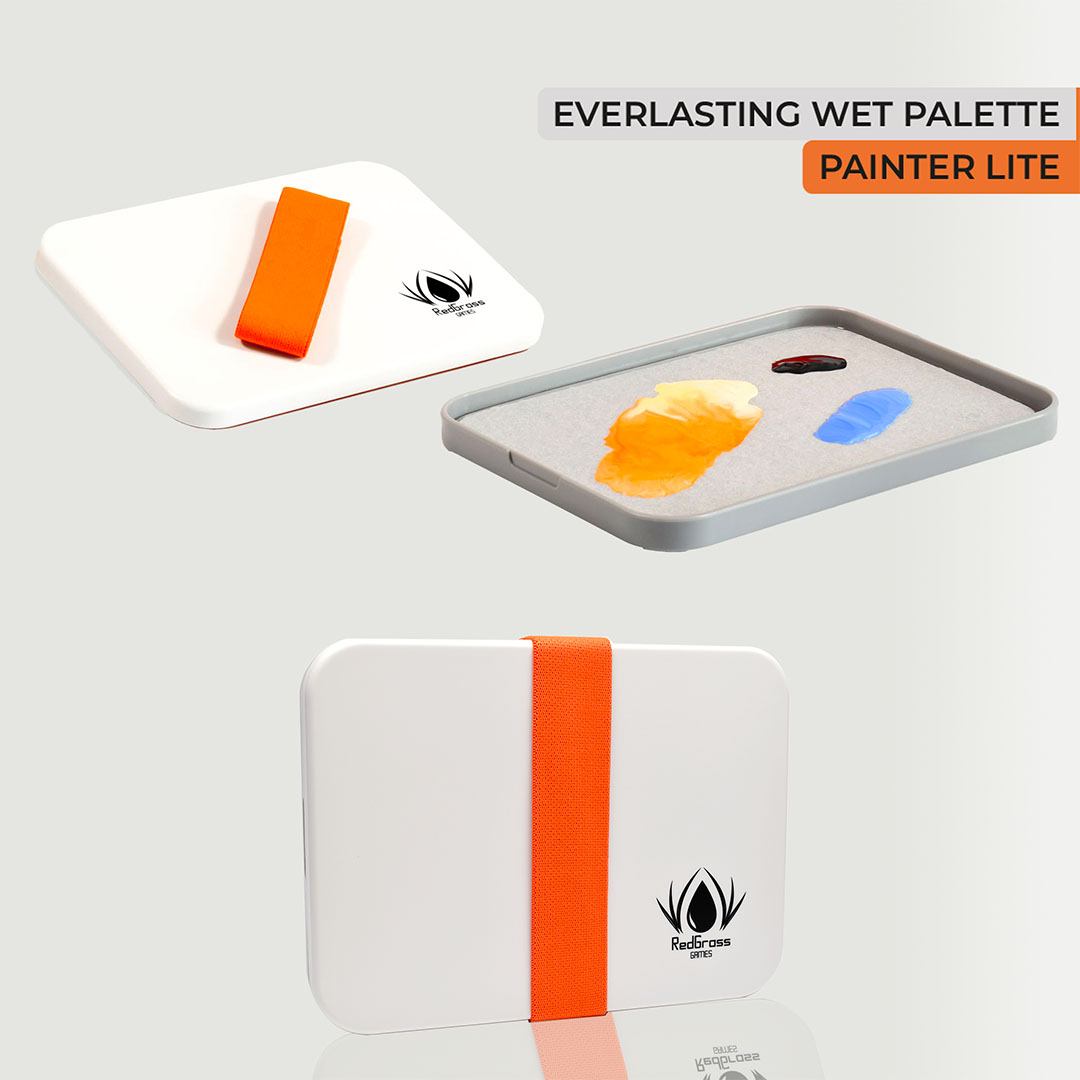
This setup guide aims to help you understand the best practices for preparing your Redgrass Wet Palette Lite Series, enabling you to keep your paints in optimal condition.
Unpacking the Package: Begin by opening your package and locating the hydration foam pad. If you have extra foam pads, store them away for future use.
Preparing the Hydration Foam Pad: Initially, the foam pad might be somewhat dry, affecting its size. However, it will return to its original shape as you proceed through steps 2 to 4. You can skip those steps if your foam pad is constantly in use.
Setting Up the Palette: Place the foam pad inside the wet palette. Add water until the foam is fully saturated but not submerged. The correct water level is crucial for maintaining the consistency of your paint. Check our recommendations below.
Adjusting Water Levels: As you gain experience, you can adjust the amount of water to suit your painting style and needs, ensuring that your paint remains consistent for as long as possible.
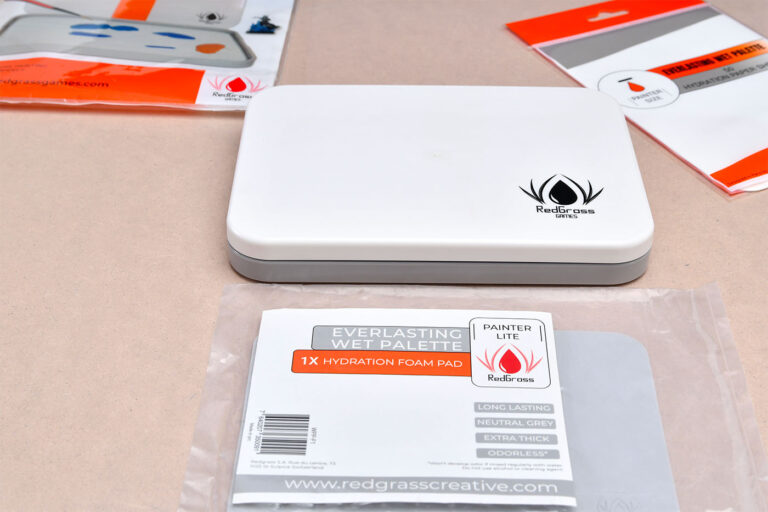
You will need one hydration foam pad. Initially, your foam pad may be more or less dry which may alter the size.
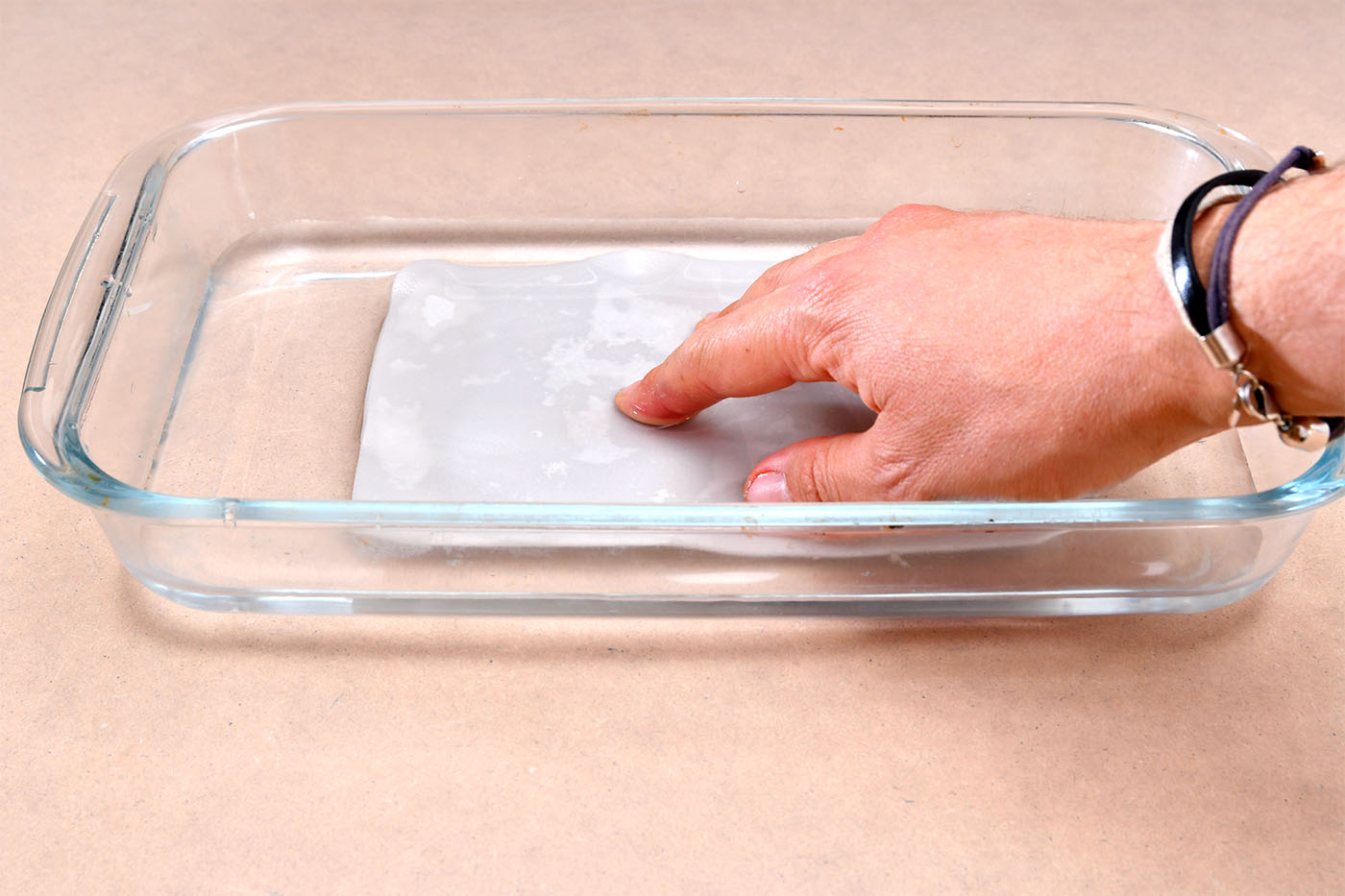
Immerse your foam pad in water. If the foam pad is dry, it may take a couple of minutes to absorb water properly. Once your foam pad is completely wet, you can stop immersing it in water.
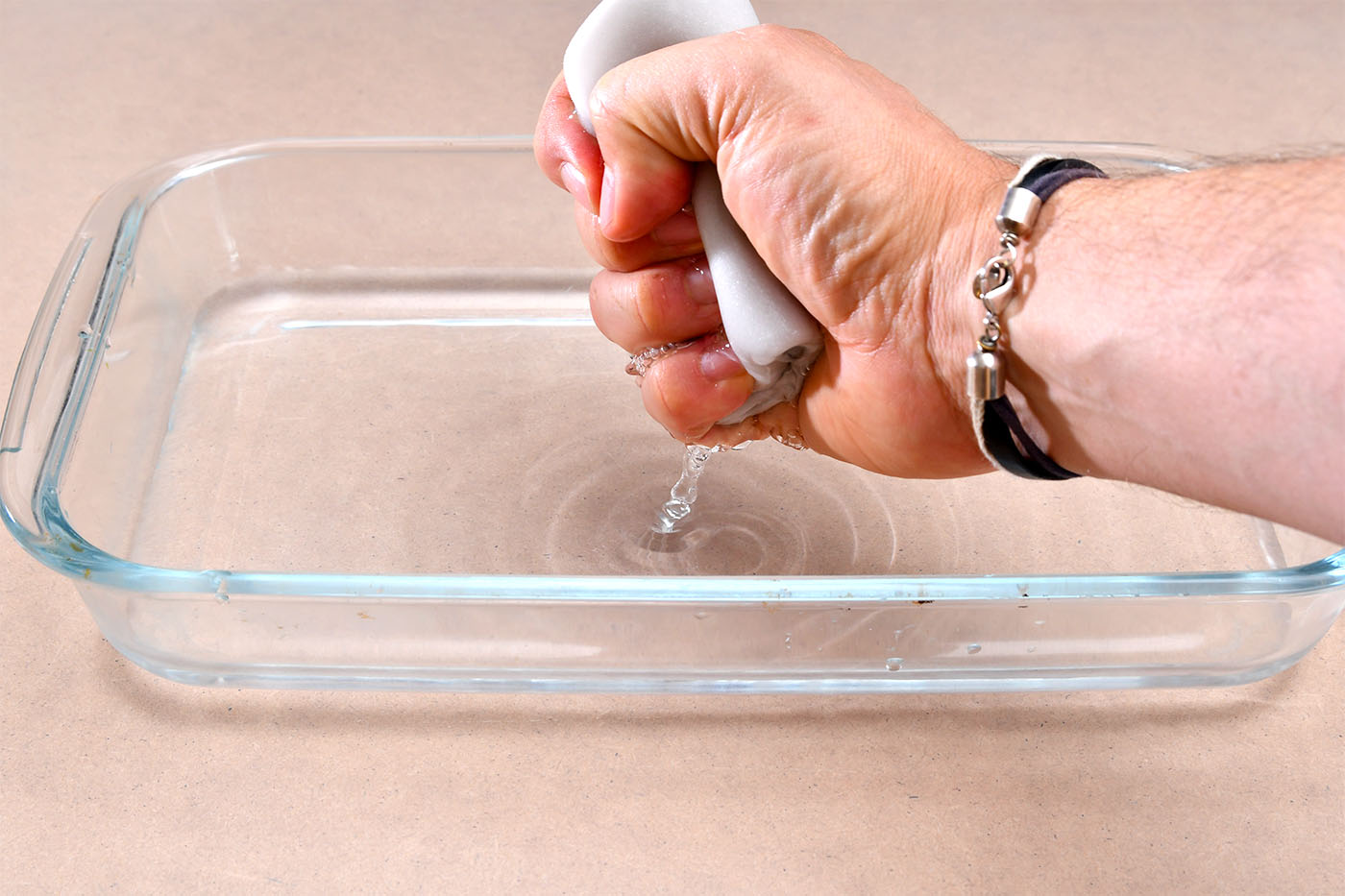
Squeeze out all the water. Steps 2 and 3 are useful only when the foam pad is completely dry and stiff.
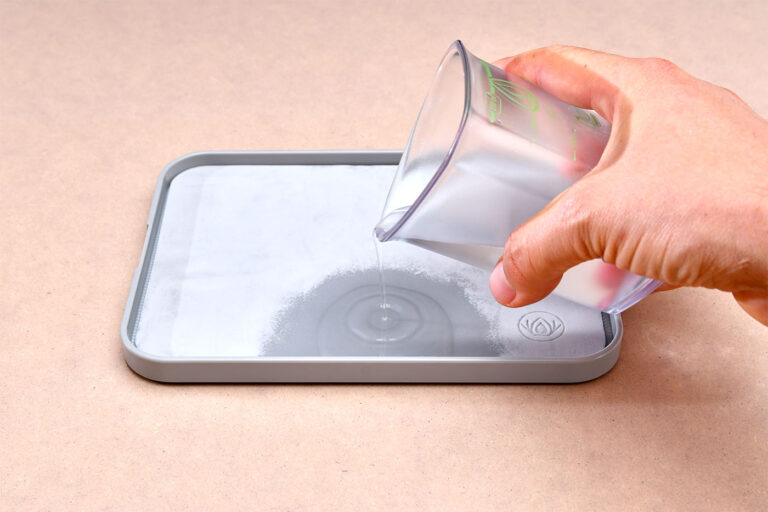
Place the foam pad in the wet palette case. Add water to moisten the foam pad. For the recommended amount of water, check the ref below.
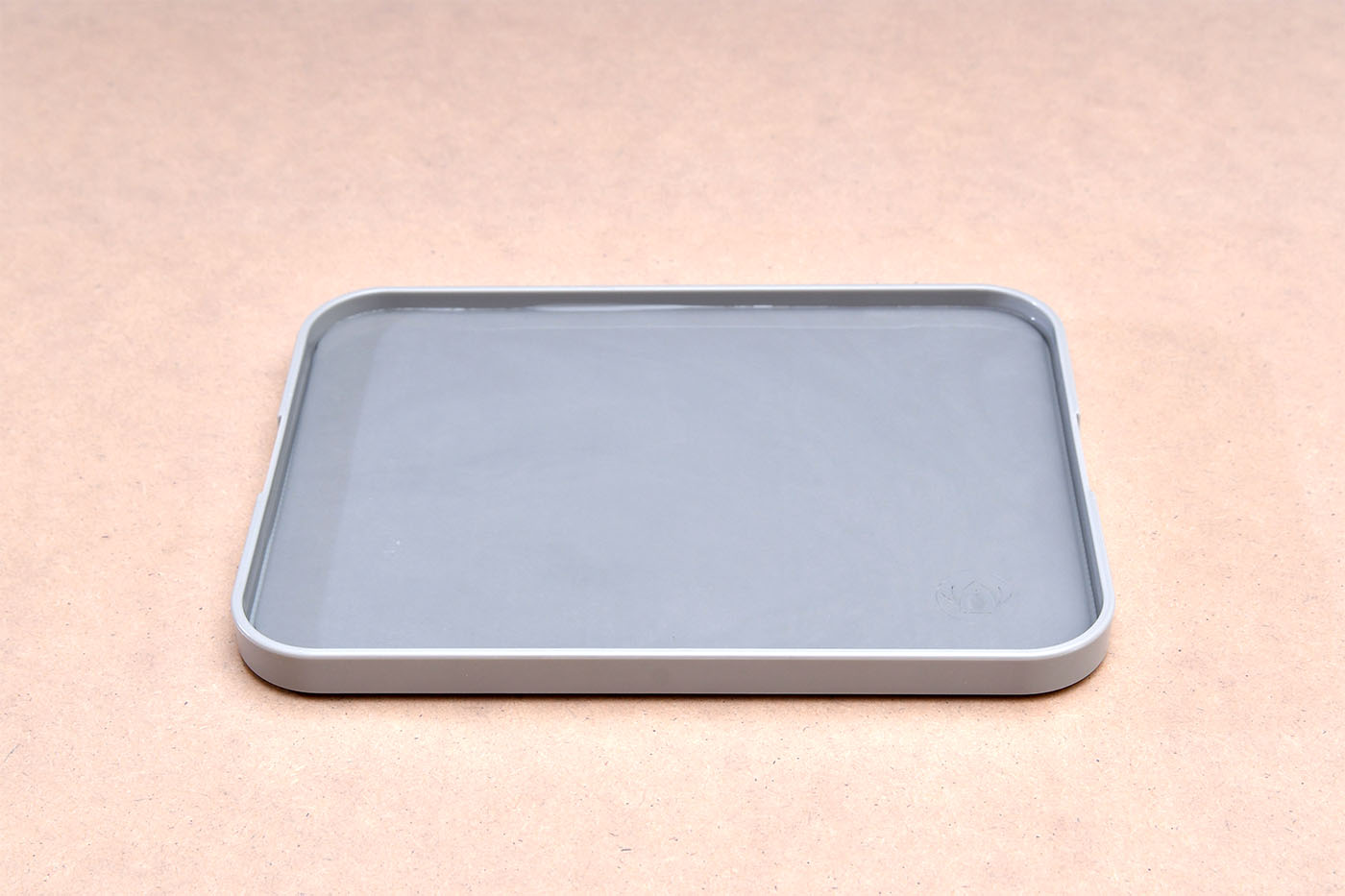
Wait until the foam pad is evenly moistened. Ensure that the water level inside the wet palette case is not higher than the top of the foam pad; if you have too much water it will flood the surface of the membrane when you apply it.
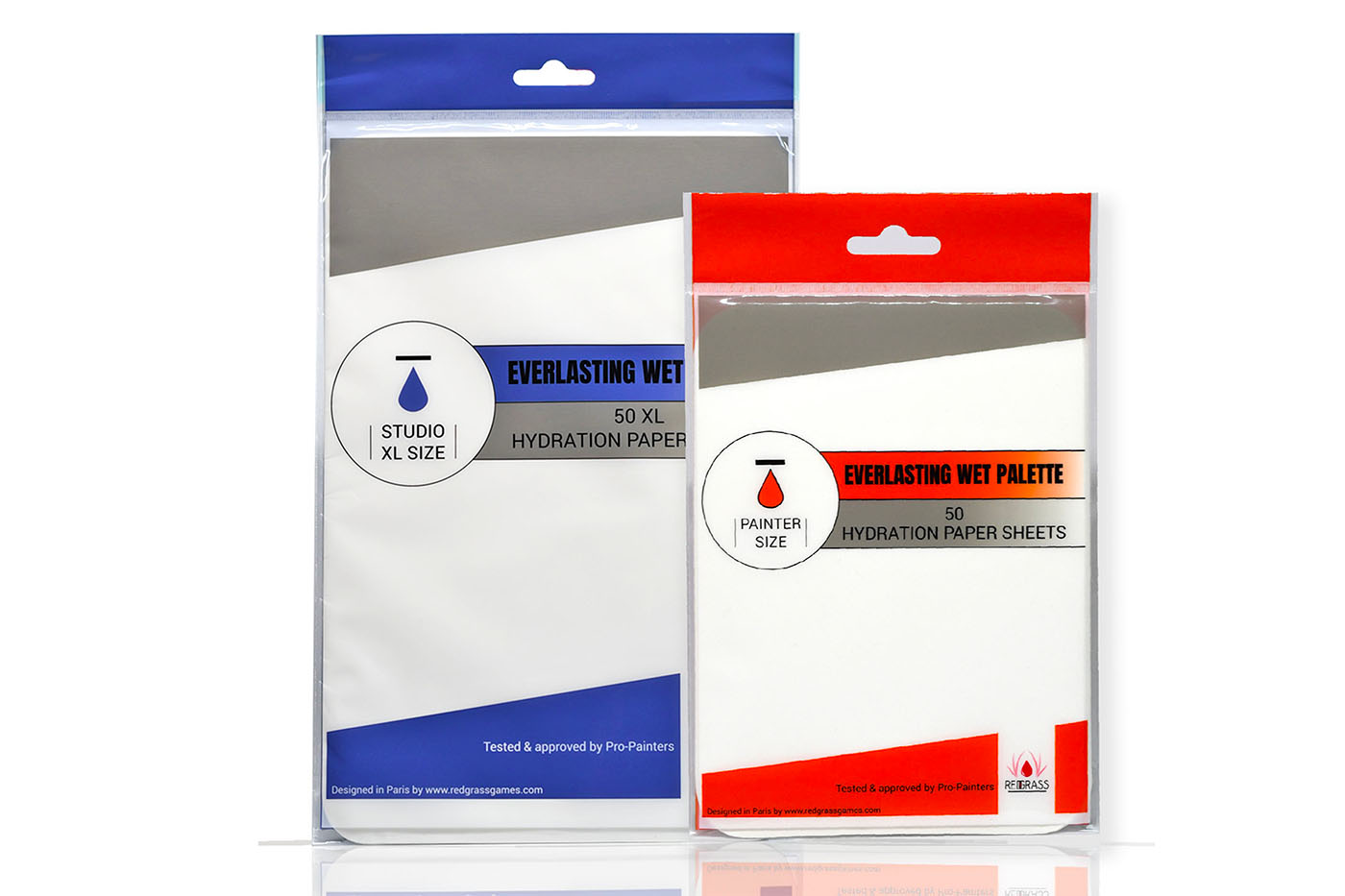
Take one hydration paper sheet.
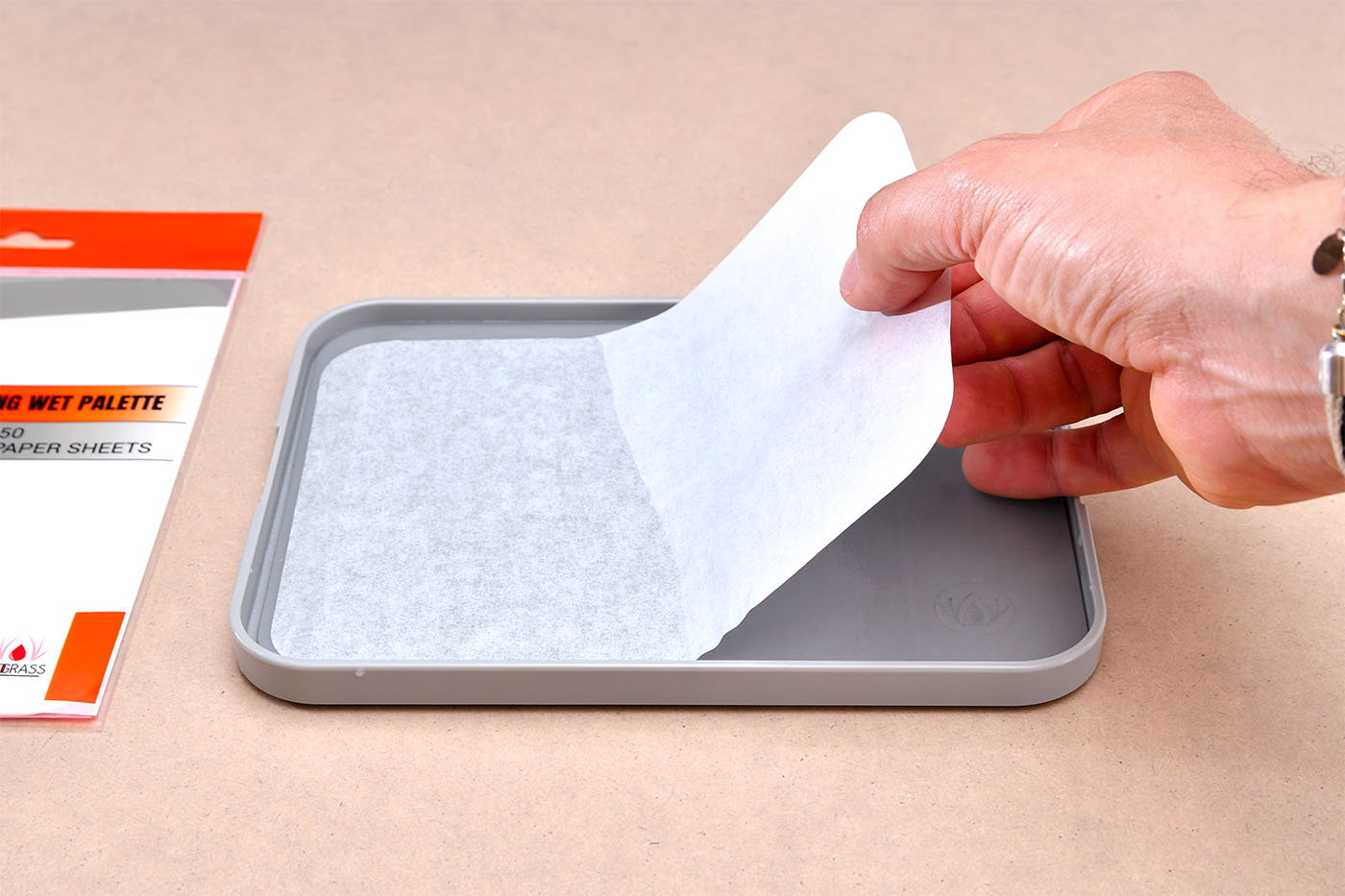
Apply your hydration paper sheet: Ensure the paper lines up with the foam pad and is in contact with it, without any water on top.
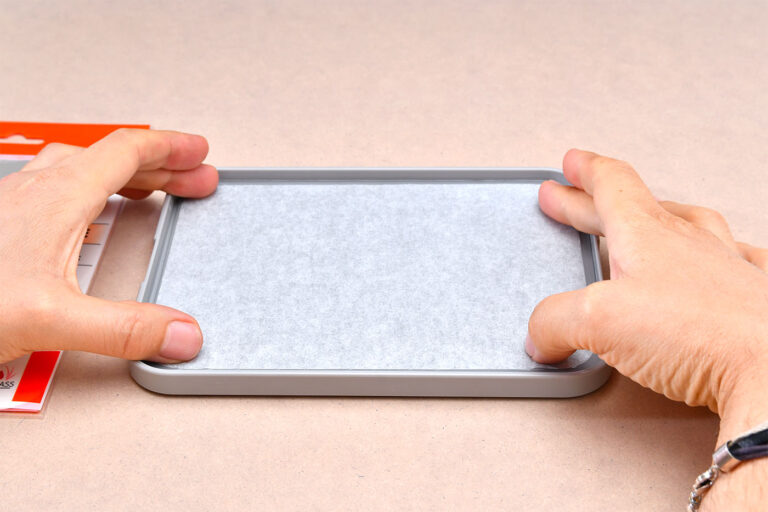
If necessary, smooth out the paper sheet with the side of your hand to remove any curling or bubbling.
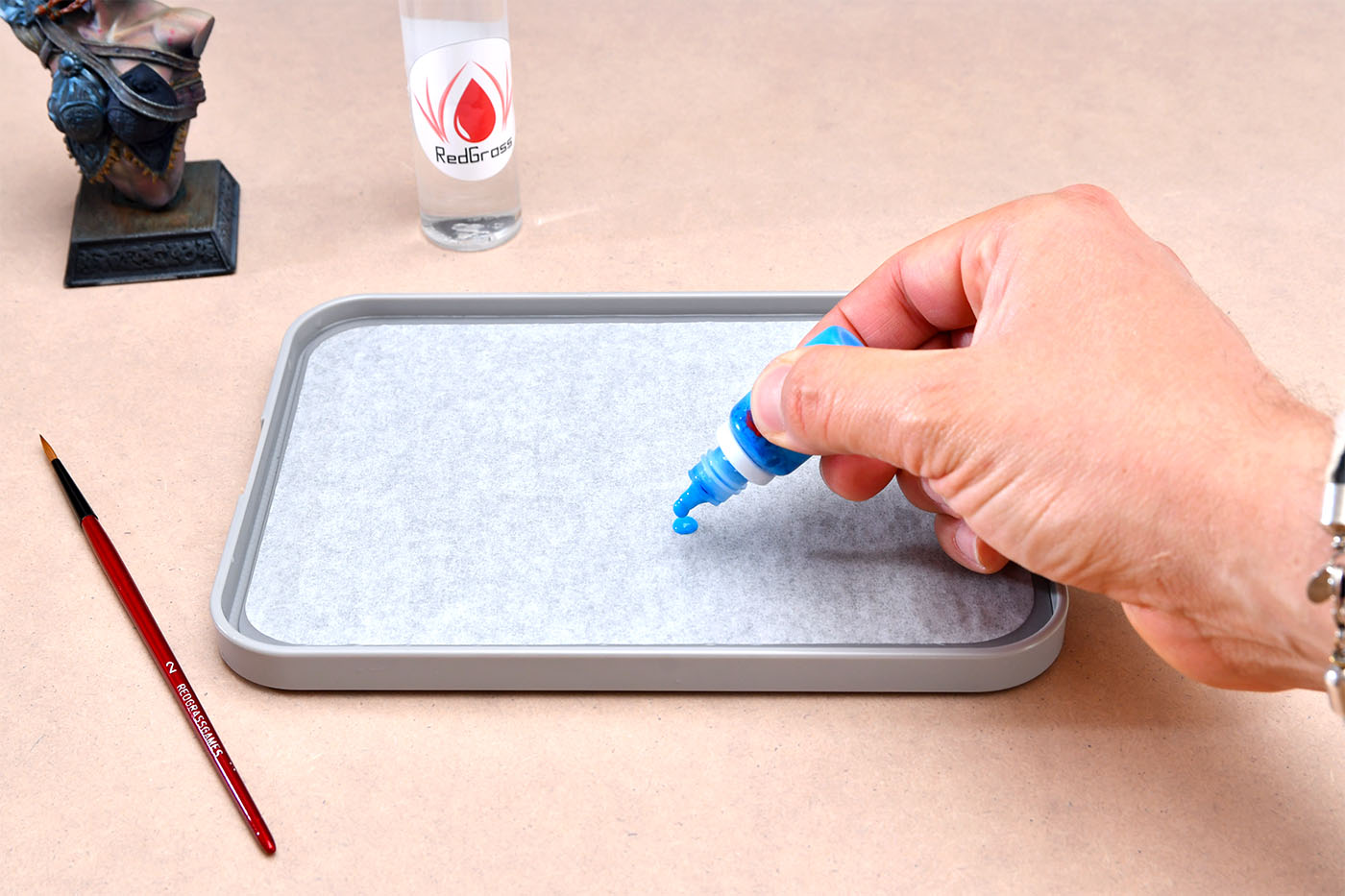
Start painting!
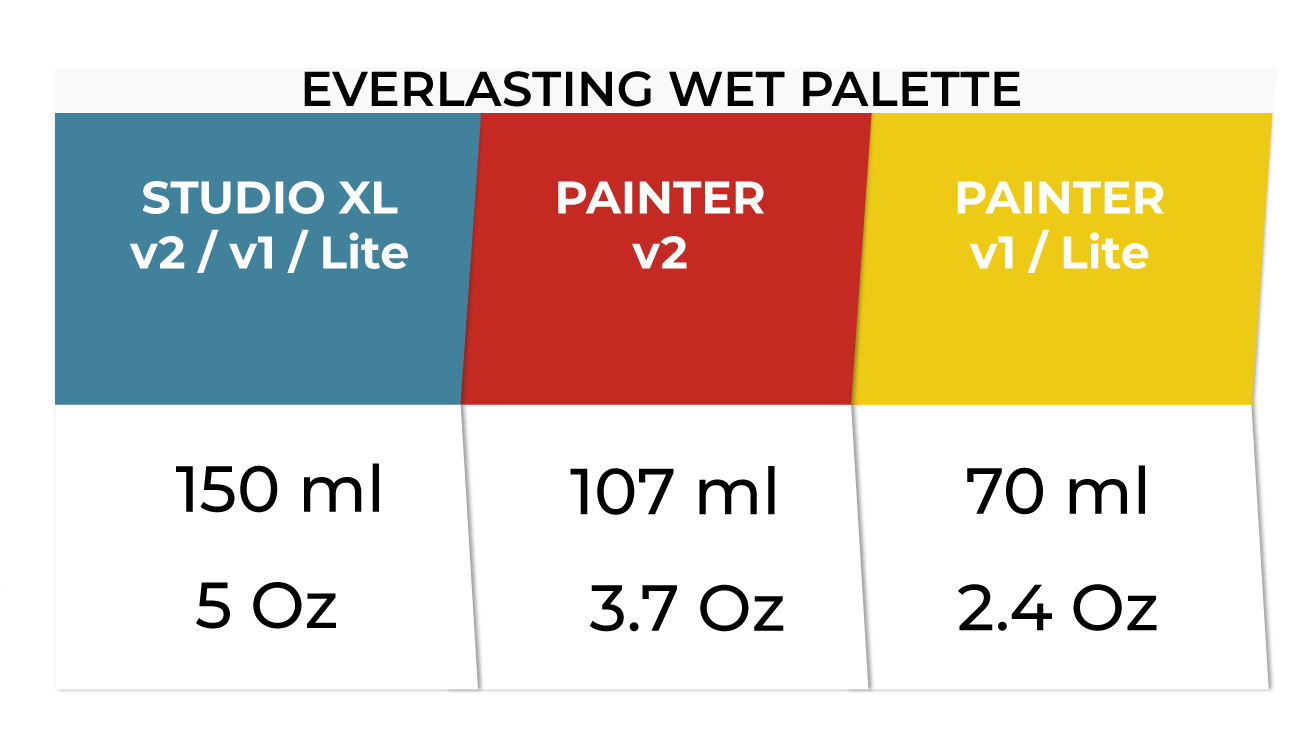
Don't forget to top up your water every couple of hours!
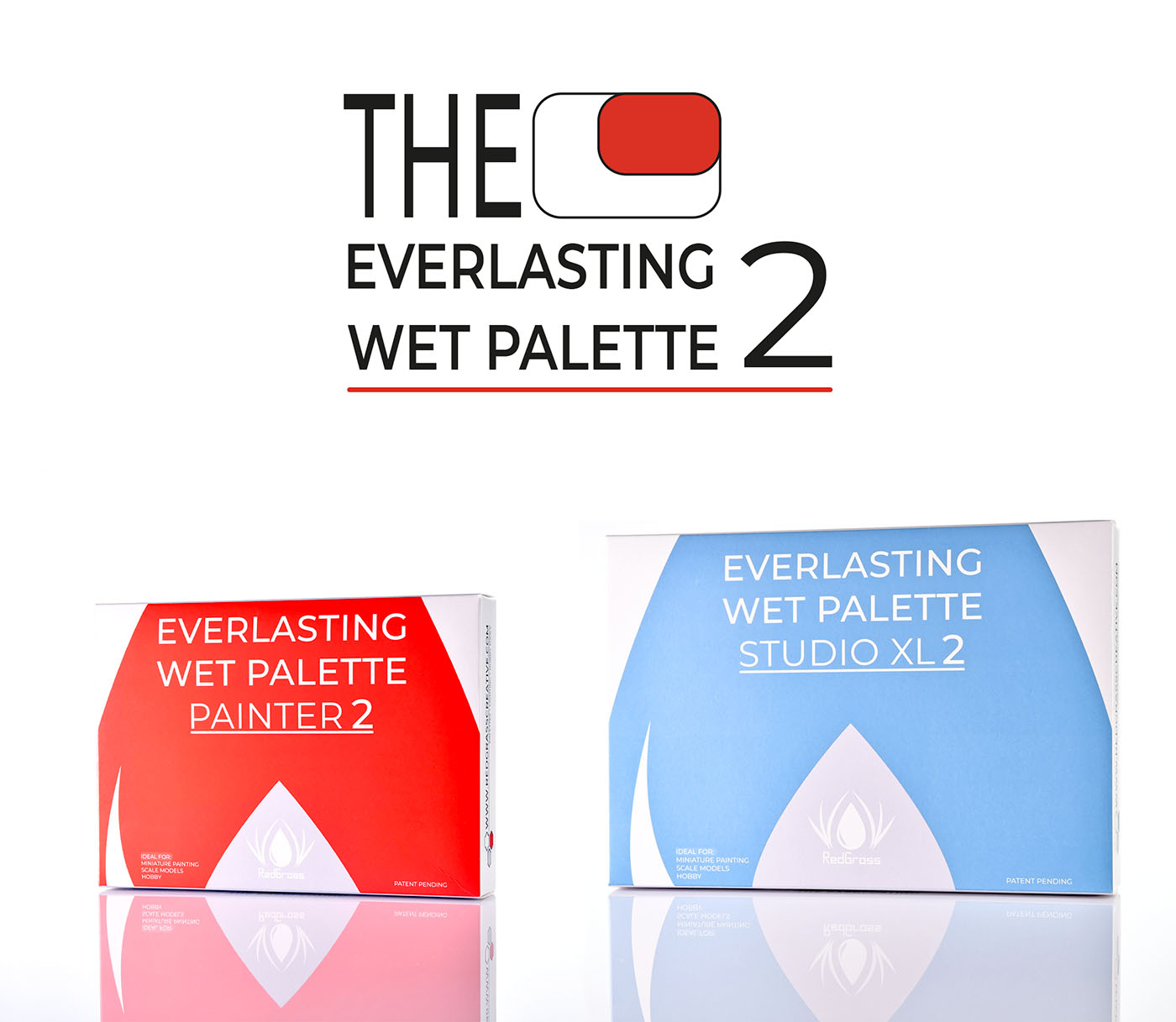
This setup guide aims to help you understand the best practices for preparing your Redgrass Wet Palette v2 Series, enabling you to keep your paints in optimal condition.
Unpacking the Package: Begin by opening your package and locating the hydration foam pad. If you have extra foam pads, store them away for future use.
Preparing the Hydration Foam Pad: Initially, the foam pad might be somewhat dry, affecting its size. However, it will return to its original shape as you proceed through steps 2 to 4. You can skip those steps if your foam pad is constantly in use.
Setting Up the Palette: Place the foam pad inside the wet palette. Add water until the foam is fully saturated but not submerged. The correct water level is crucial for maintaining the consistency of your paint. Check our recommendations below.
Adjusting Water Levels: As you gain experience, you can adjust the amount of water to suit your painting style and needs, ensuring that your paint remains consistent for as long as possible.
Reusable Membrane: The Wet Palette V2 series features a groundbreaking, patented membrane that is reusable and cleanable. Learn how to use and clean it so you can reuse it 4 times, and even more with care.
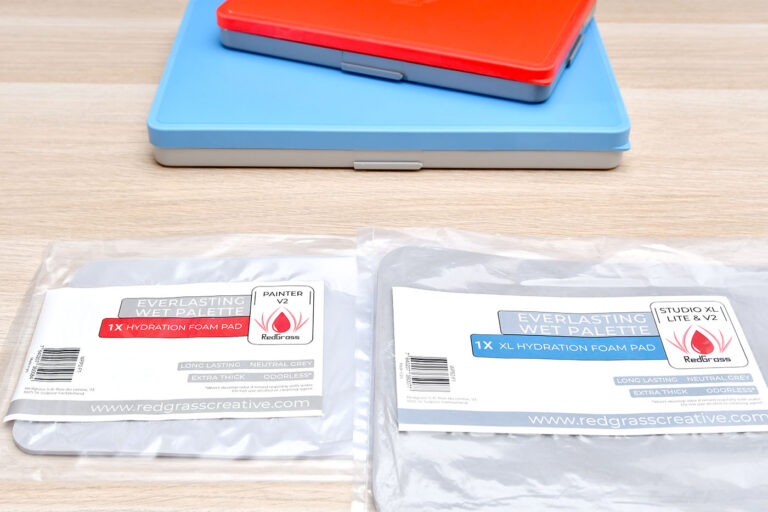
You will need one hydration foam pad. Initially, your foam pad may be more or less dry which may alter the size.
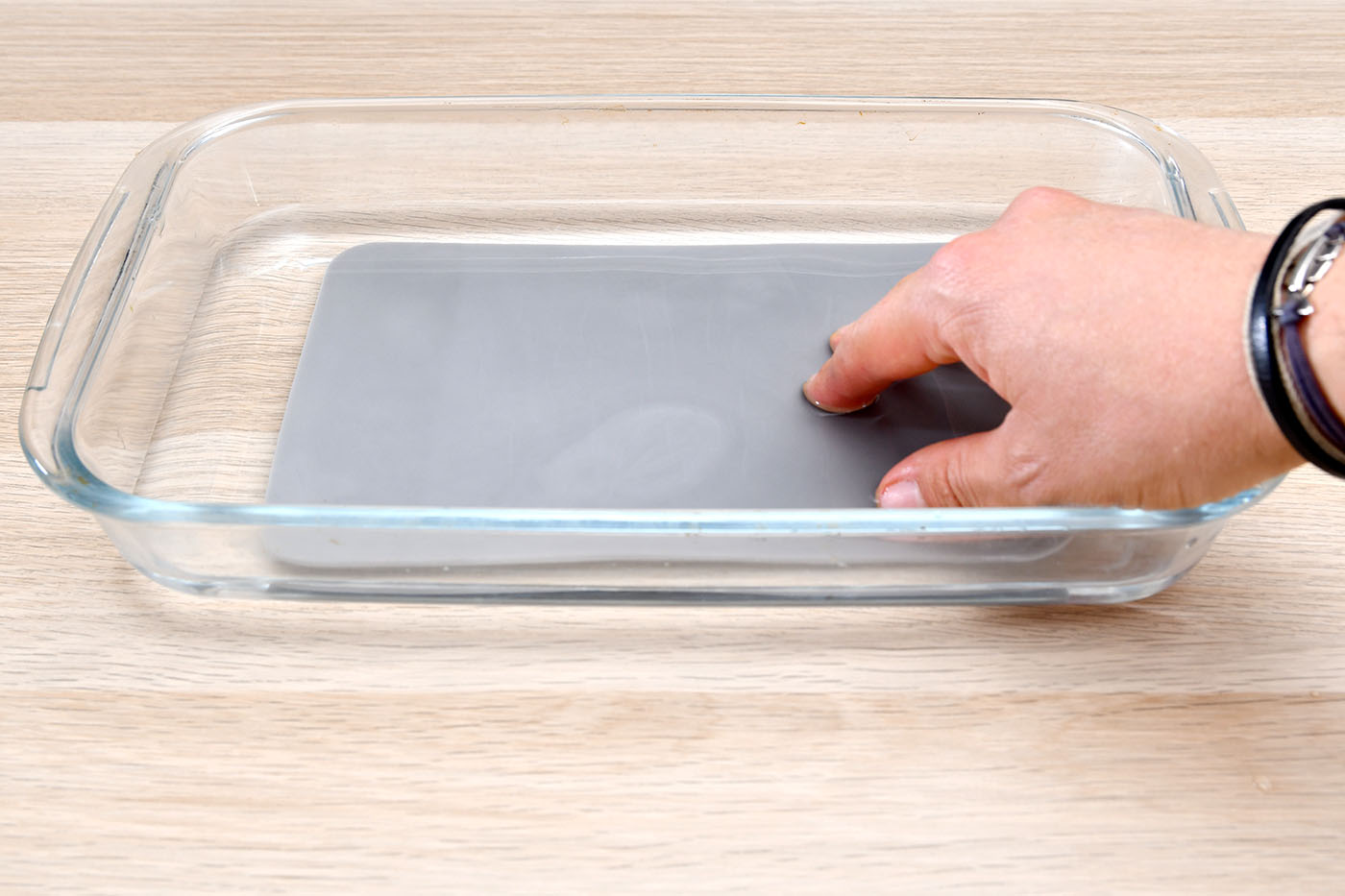
Immerse your foam pad in water. If the foam pad is dry, it may take a couple of minutes to absorb water properly. Once your foam pad is completely wet, you can stop immersing it in water.
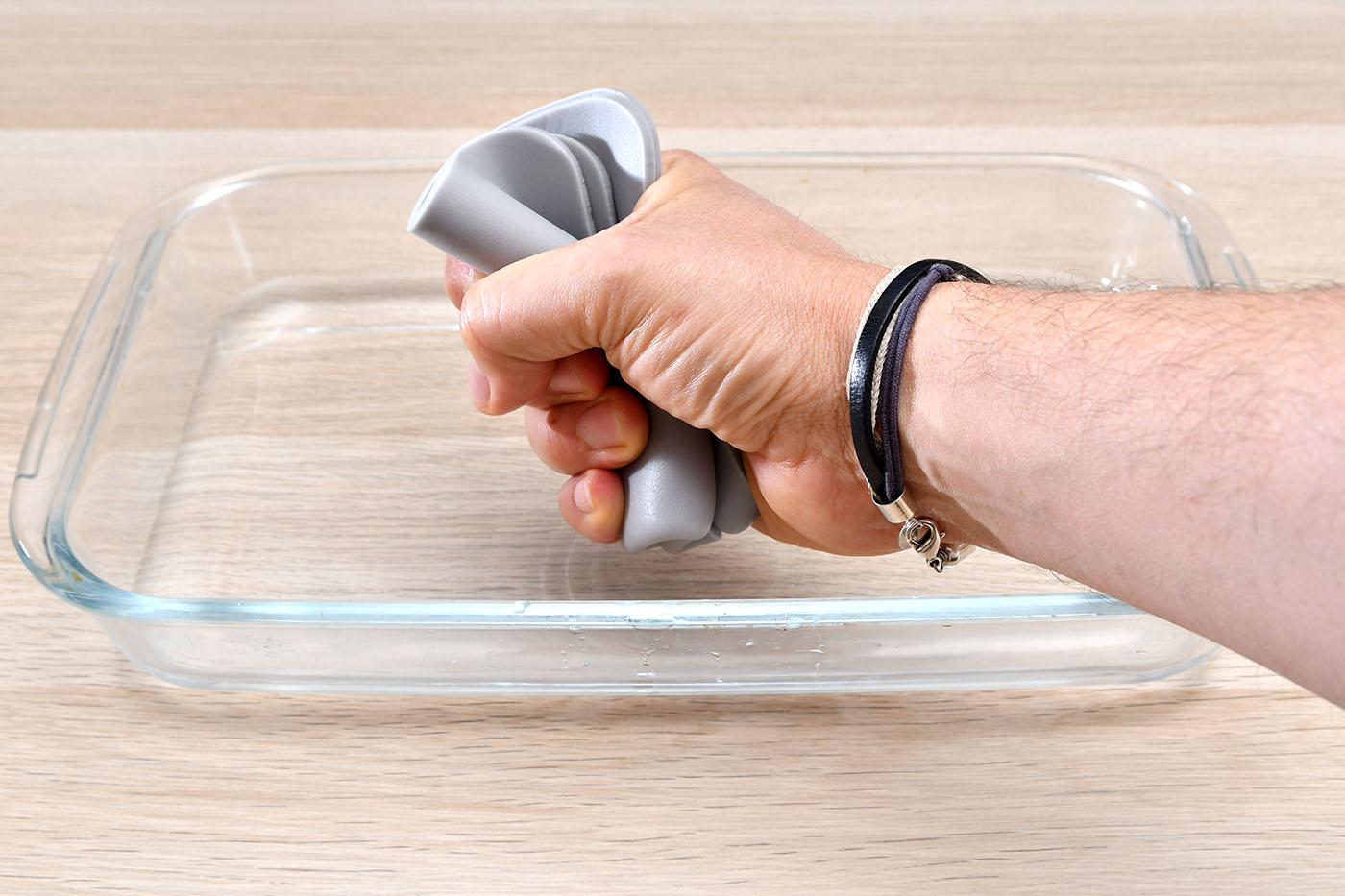
Squeeze out all the water. Steps 2 and 3 are useful only when the foam pad is completely dry and stiff.
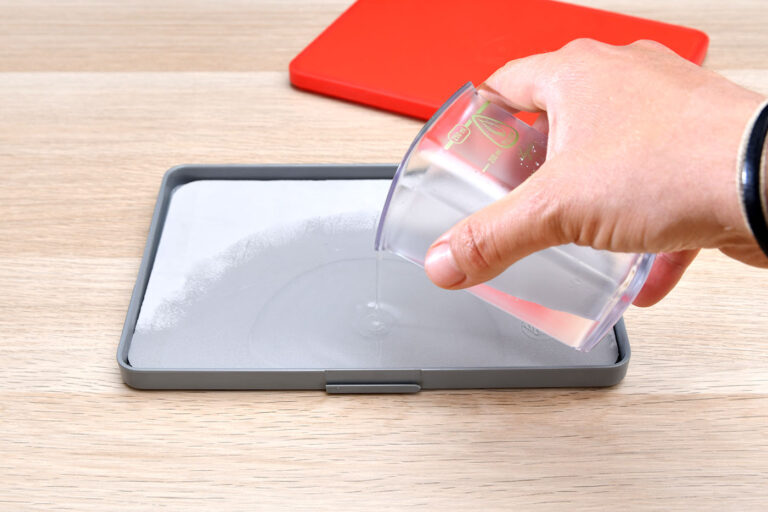
Place the foam pad in the wet palette case. Add water to moisten the foam pad. For the recommended amount of water, check the ref below.
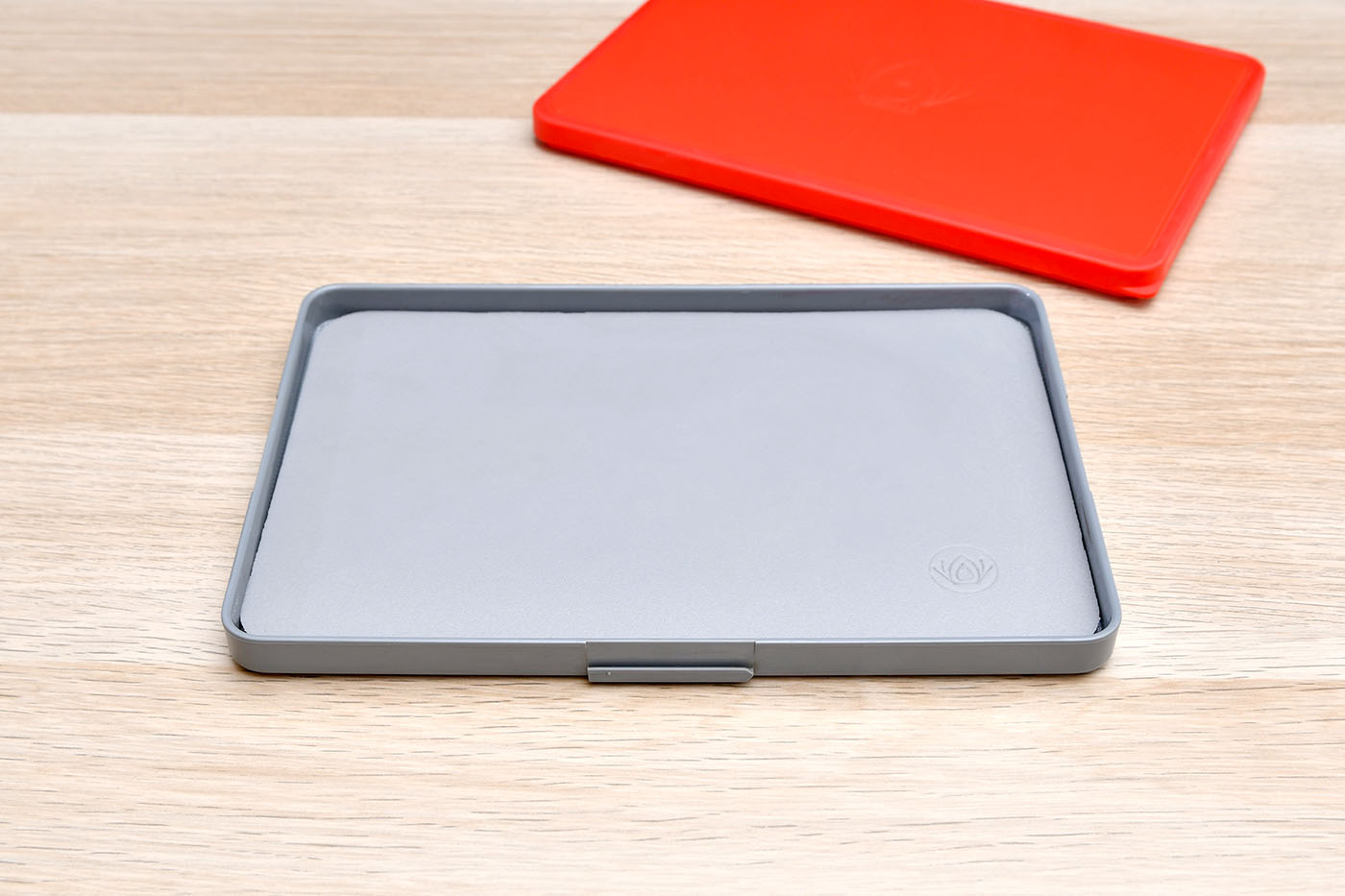
Wait until the foam pad is evenly moistened. Ensure that the water level inside the wet palette case is not higher than the top of the foam pad; if you have too much water it will flood the surface of the membrane when you apply it.
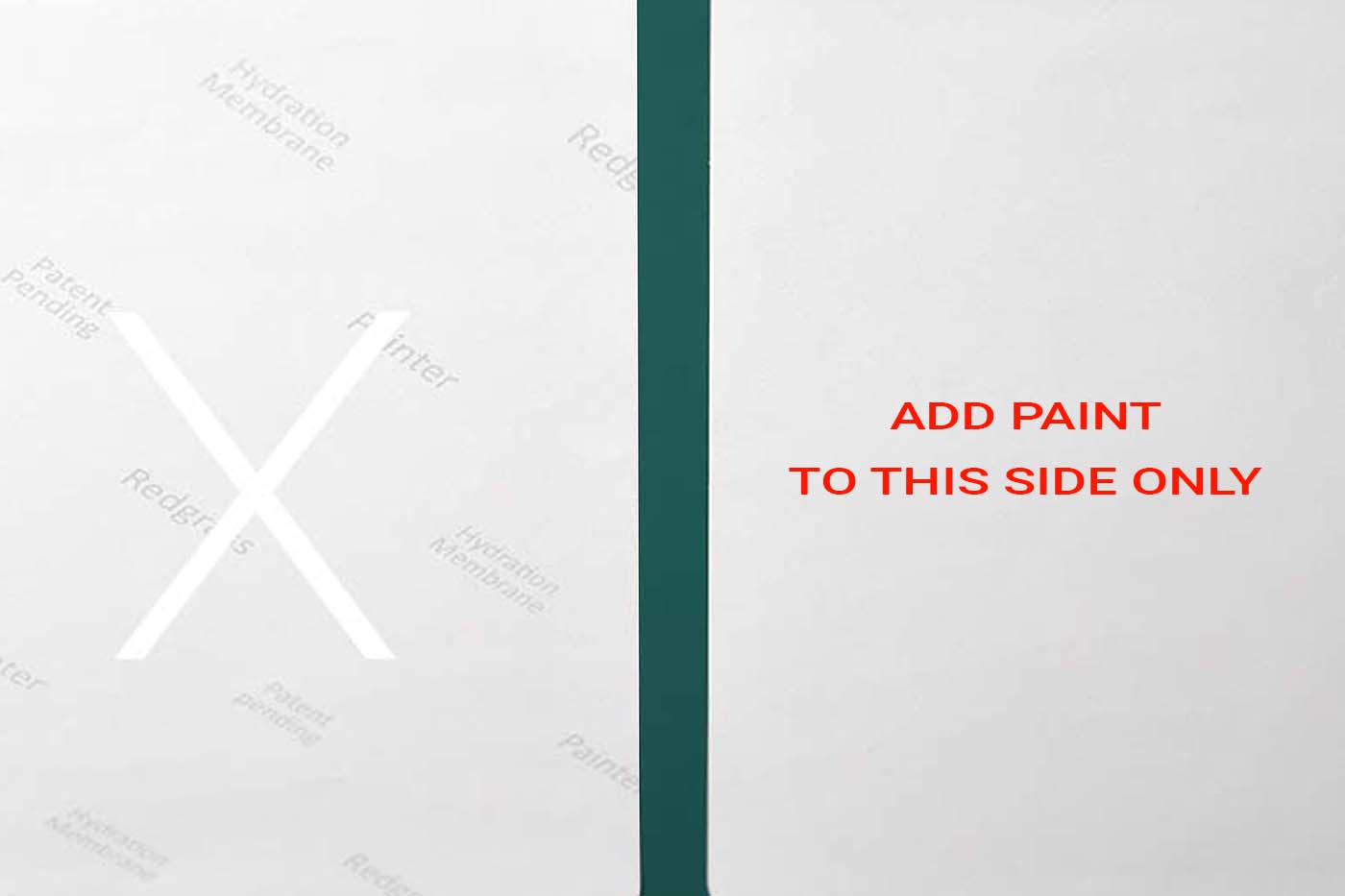
Unlike the hydration papers, RGG membranes are one-sided. The blank side should face up. The printed side is the back side.
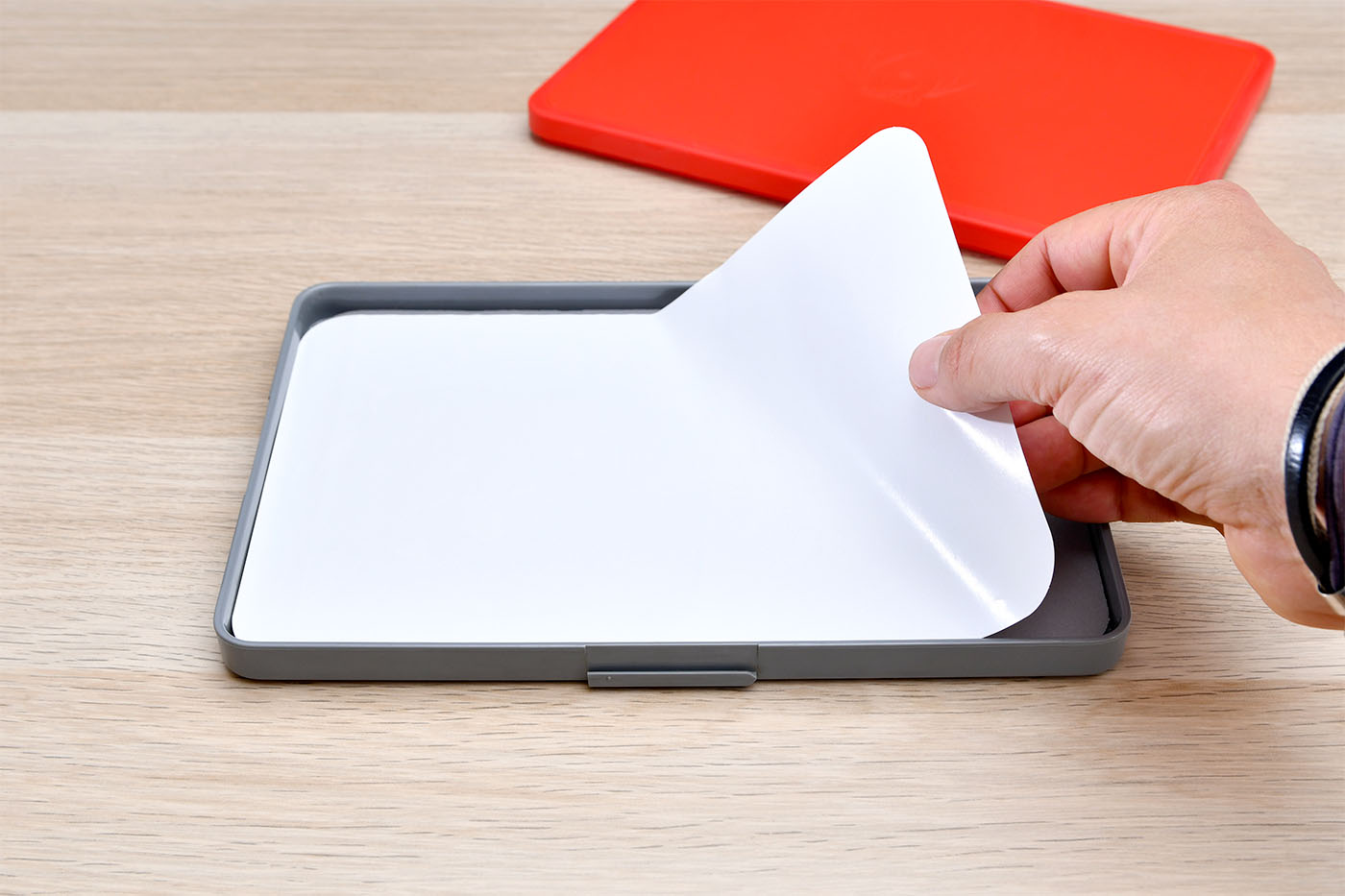
Apply your hydration membrane. Make sure the paper lines up with the foam pad. Ensure that you place the membrane the correct way up.
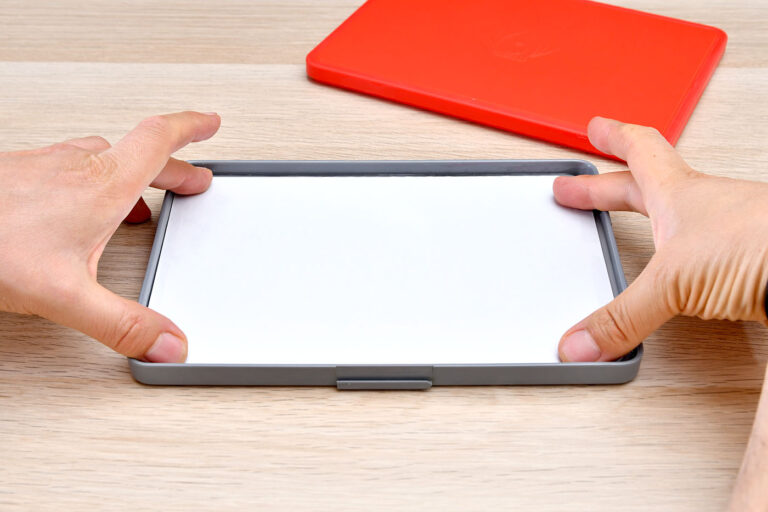
If necessary, smooth out the membrane with the side of your hand to remove any curling or bubbling. For best results, the surface should always be 100% in contact with the moistened foam pad beneath.
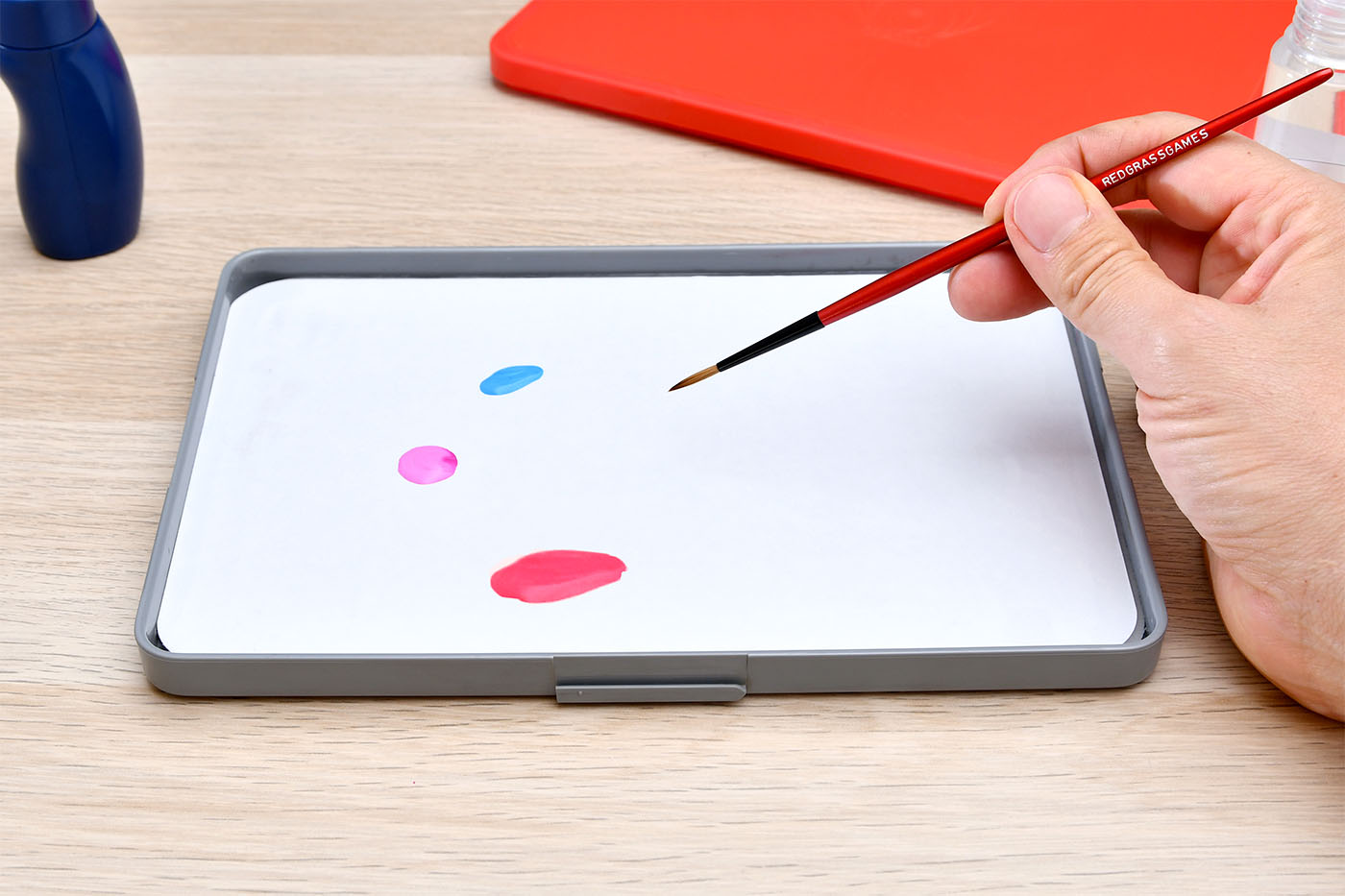
Start painting!

Don't forget to top up your water every couple of hours!
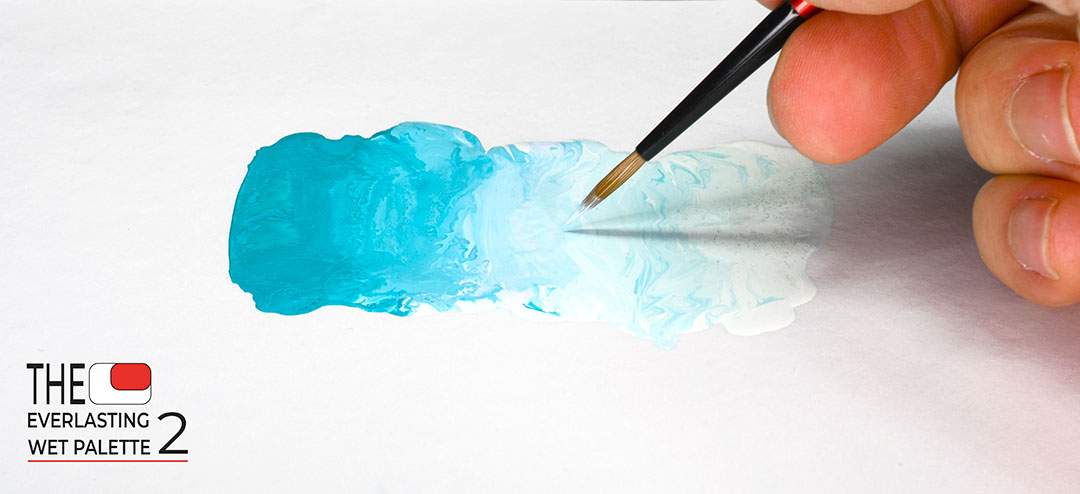
Our patented reusable membrane is specifically designed for miniature painting.
This innovative membrane not only enhances your painting experience by ensuring consistent paint quality but also contributes to environmental sustainability by reducing waste.
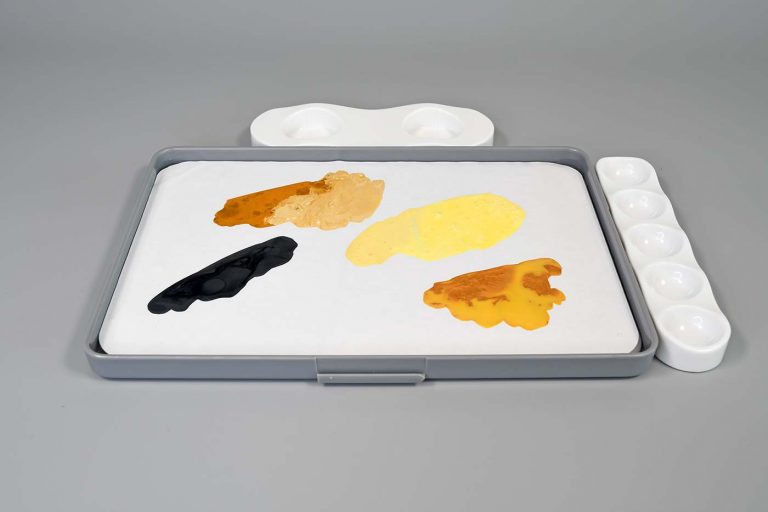
Remove or use any excess paint from the membrane surface before cleaning.
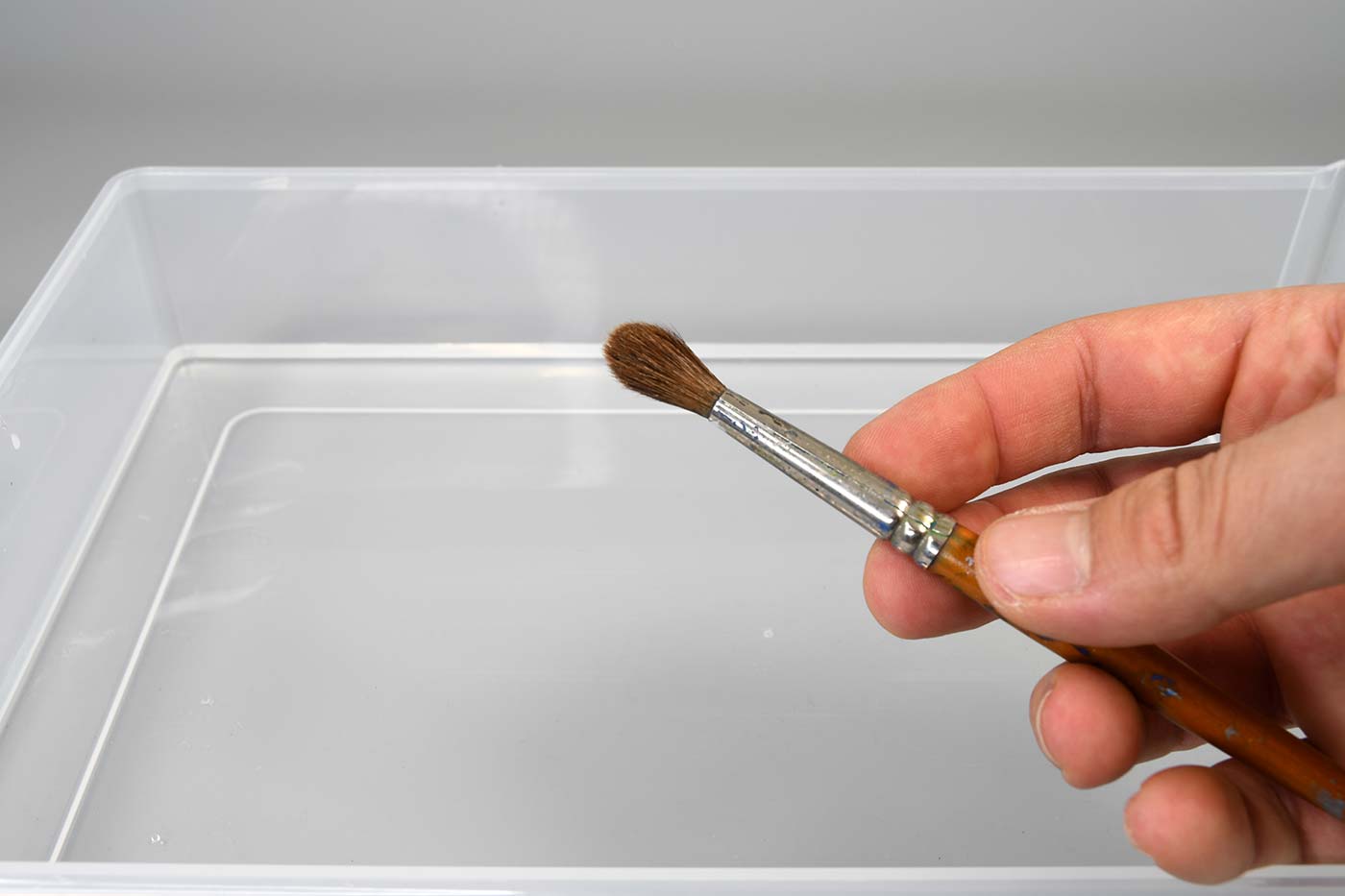
For cleaning away the old paint adhering to the membrane, use an old large soft brush, damp paper towel, or your fingers to avoid damaging the membrane surface.
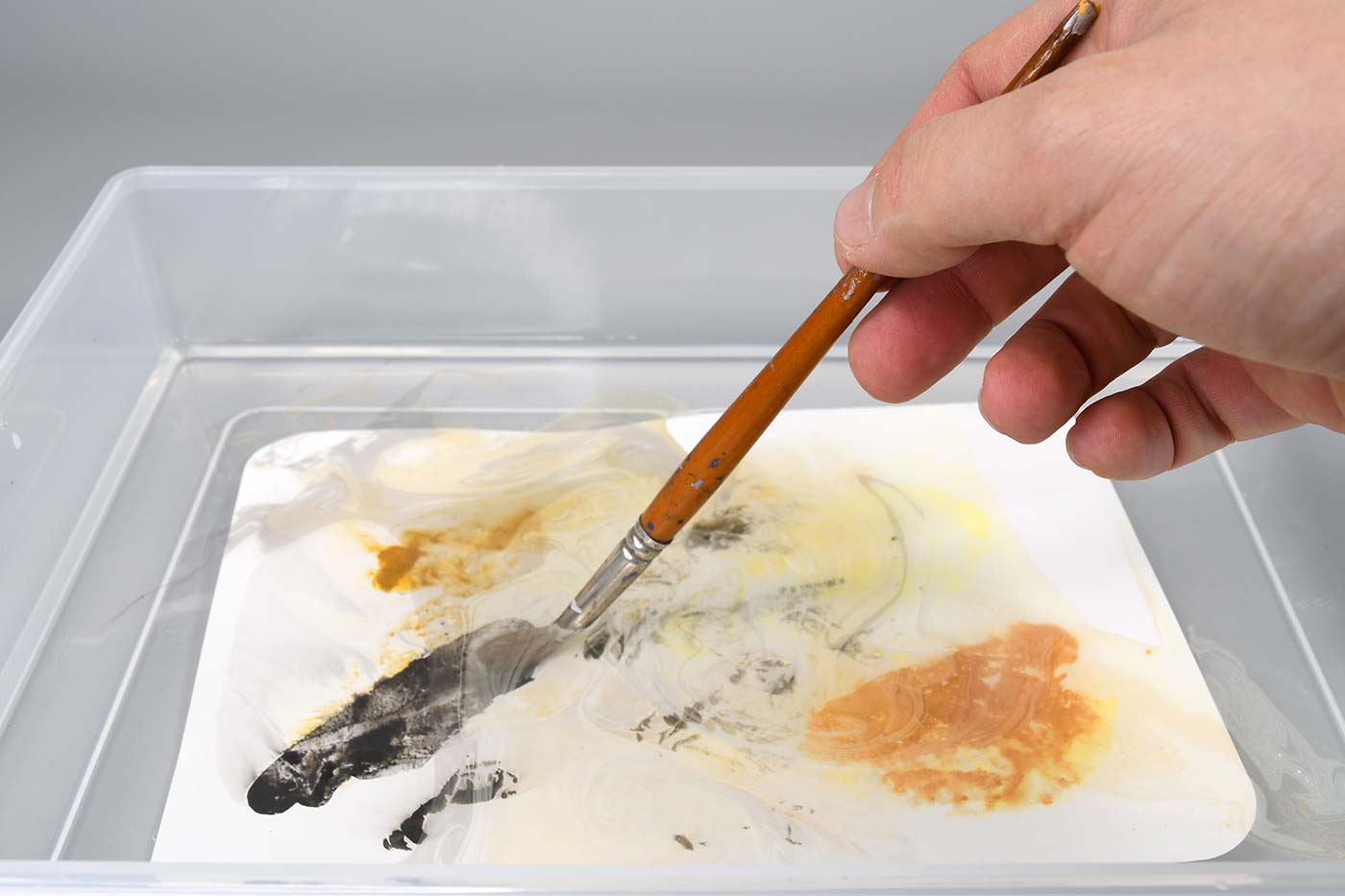
In a sink or in a bowl full of lukewarm water, clean off any remaining paint. Use gentle, circular motions to remove the old paint. Do not scratch at the paint as this can damage the membrane surface.
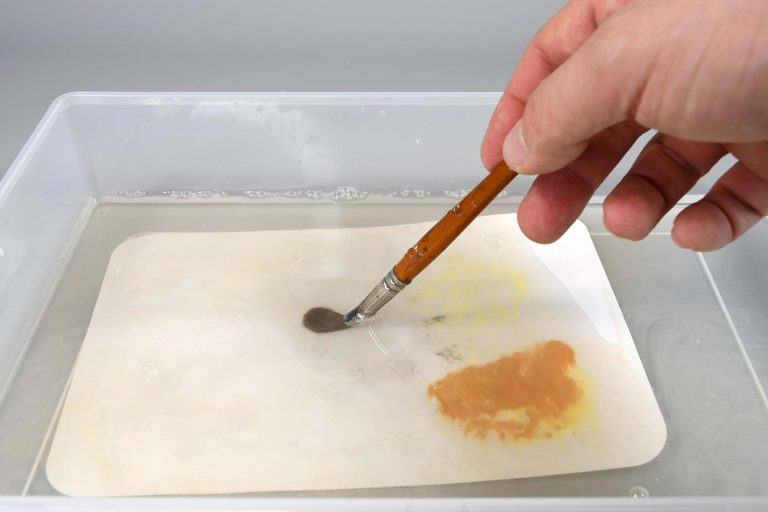
If the paint is not fully dried on or cured, it should come off easily in water. Do not use strong cleaning chemicals or abrasive tools to remove old paint.
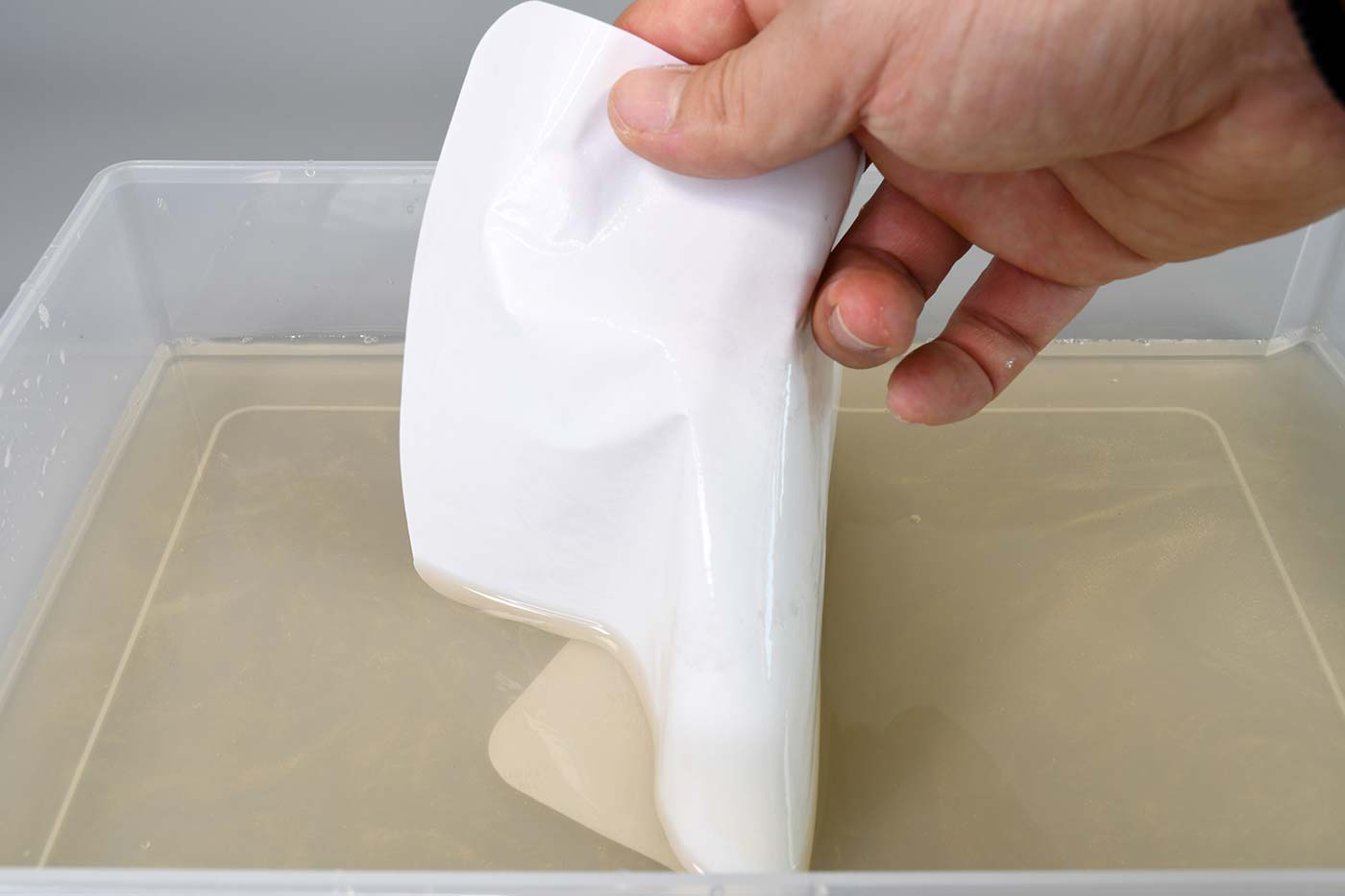
Once the hydration membrane is clean...
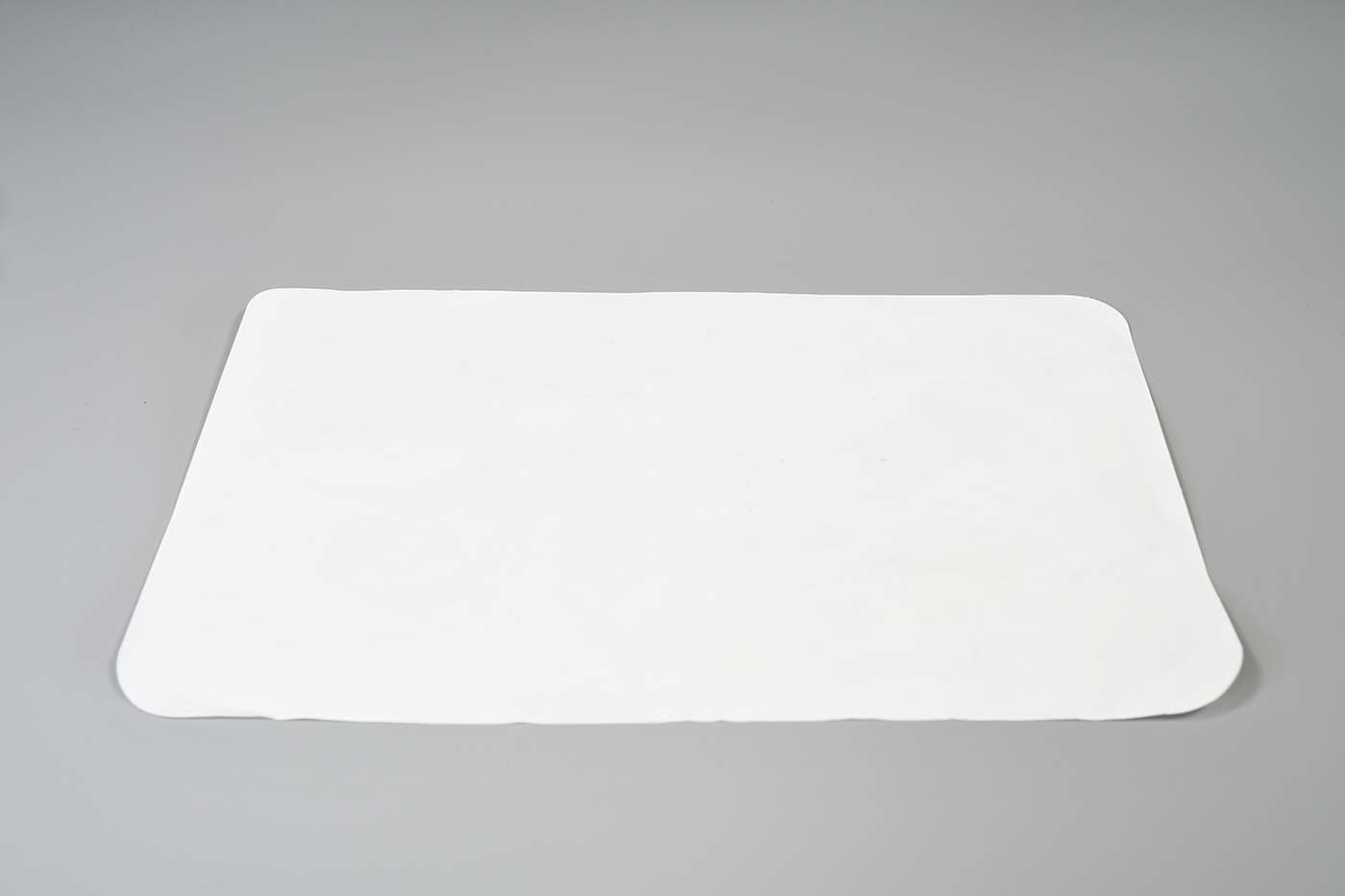
...let it dry completely! Preferably let it dry out on a flat surface.
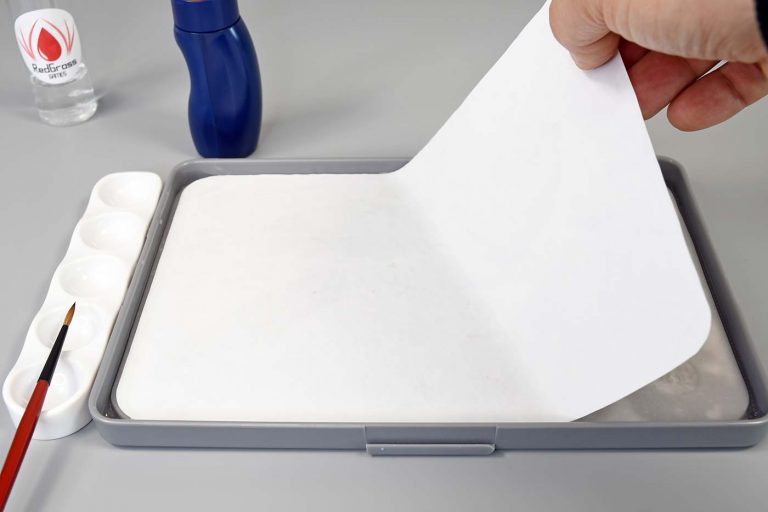
Your membrane is ready to be used again! You can reuse it at least 3 to 6 times depending on the paint you have used. With care, you can use it more- it is entirely up to you!
Your mileage may vary! With careful use and cleaning, each reusable membrane can be reused many more times than the recommended minimum guideline. It is entirely up to you!

This setup guide aims to help you understand the best practices for preparing your Wet Palette Studio XL ART Series, enabling you to keep your gouache and heavy body acrylic paints in optimal condition.
Unpacking the Package: Begin by opening your package and locating the hydration foam pad.
Preparing the Hydration Foam Pad: Initially, the foam pad might be somewhat dry, affecting its size. However, it will return to its original shape as you proceed through steps 2 to 4. You can skip those steps if your foam pad is constantly in use.
Setting Up the Palette: Place the foam pad inside the wet palette. Add water until the foam is fully saturated but not submerged. The correct water level is crucial for maintaining the consistency of your paint. Check our recommendations below.
Adjusting Water Levels: As you gain experience, you can adjust the amount of water to suit your painting style and needs, ensuring that your paint remains consistent for as long as possible.
Fine-Art Membrane: The purpose-made membrane, designed for heavy body acrylic and gouache paints, is ready for use in just a few seconds. Just pay attention to the side on which you place your paints, as the membrane is one-sided.
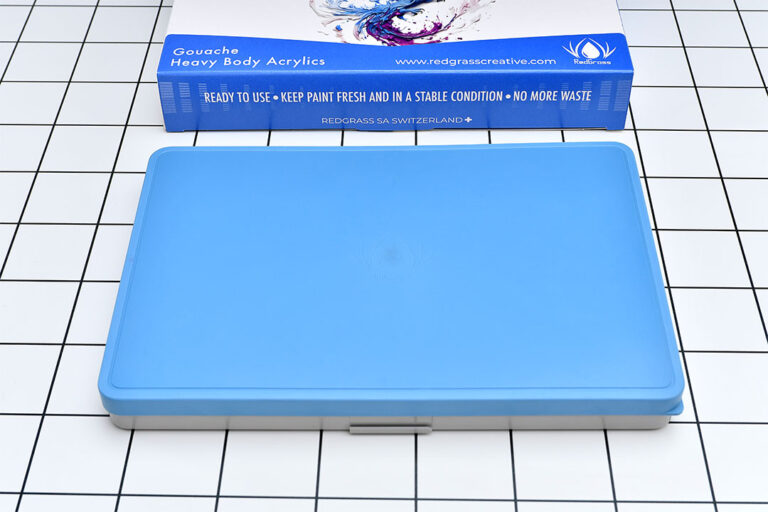
You will need one hydration foam pad. Initially, your foam pad may be more or less dry which may alter the size.
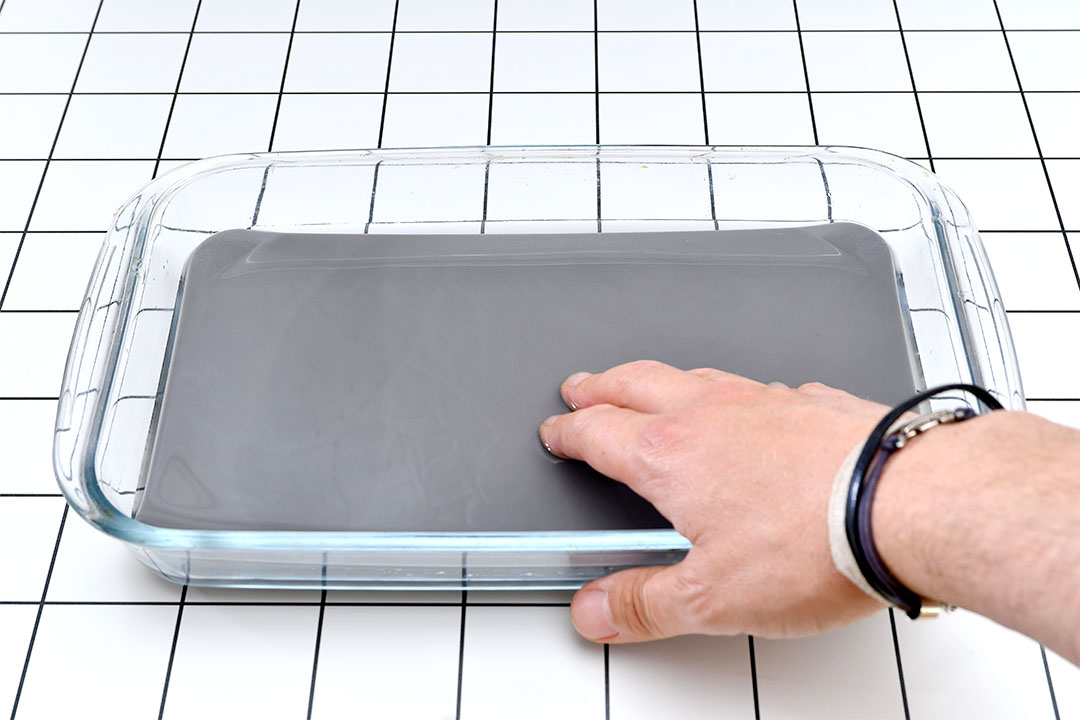
Immerse your foam pad in water. If the foam pad is dry, it may take a couple of minutes to absorb water properly. Once your foam pad is completely wet, you can stop immersing it in water.
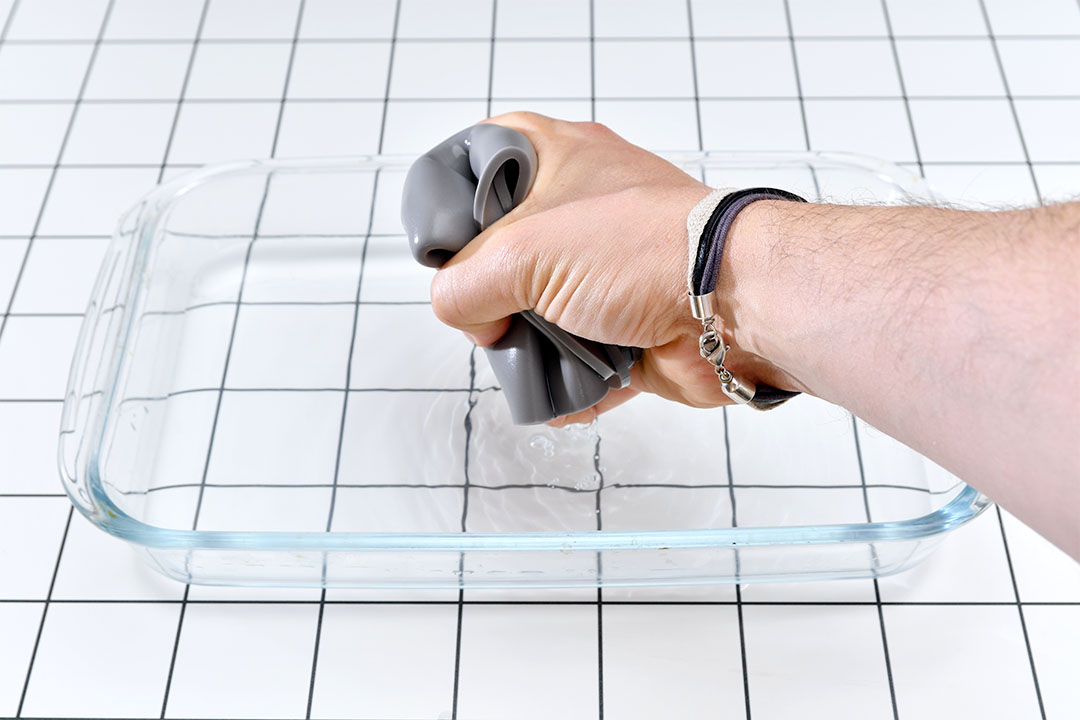
Squeeze out all the water. Steps 2 and 3 are useful only when the foam pad is completely dry and stiff.
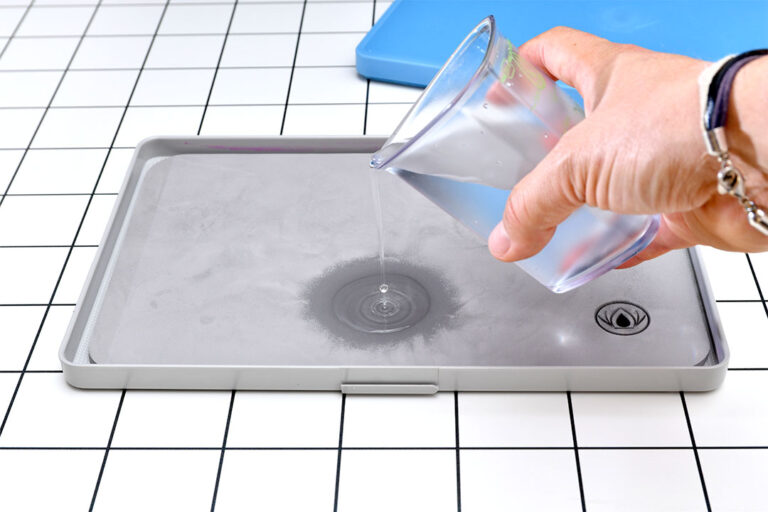
Place the foam pad in the wet palette case. Add water to moisten the foam pad. For the recommended amount of water, check the ref below.
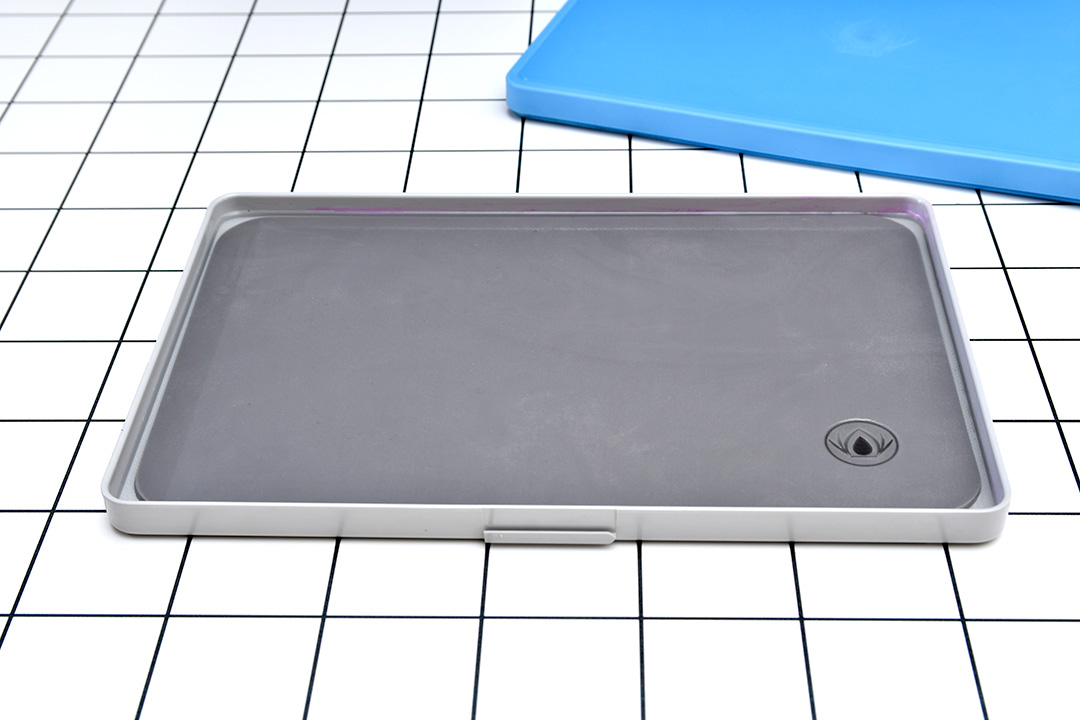
Wait until the foam pad is evenly moistened. Ensure that the water level inside the wet palette case is not higher than the top of the foam pad; if you have too much water it will flood the surface of the membrane when you apply it.
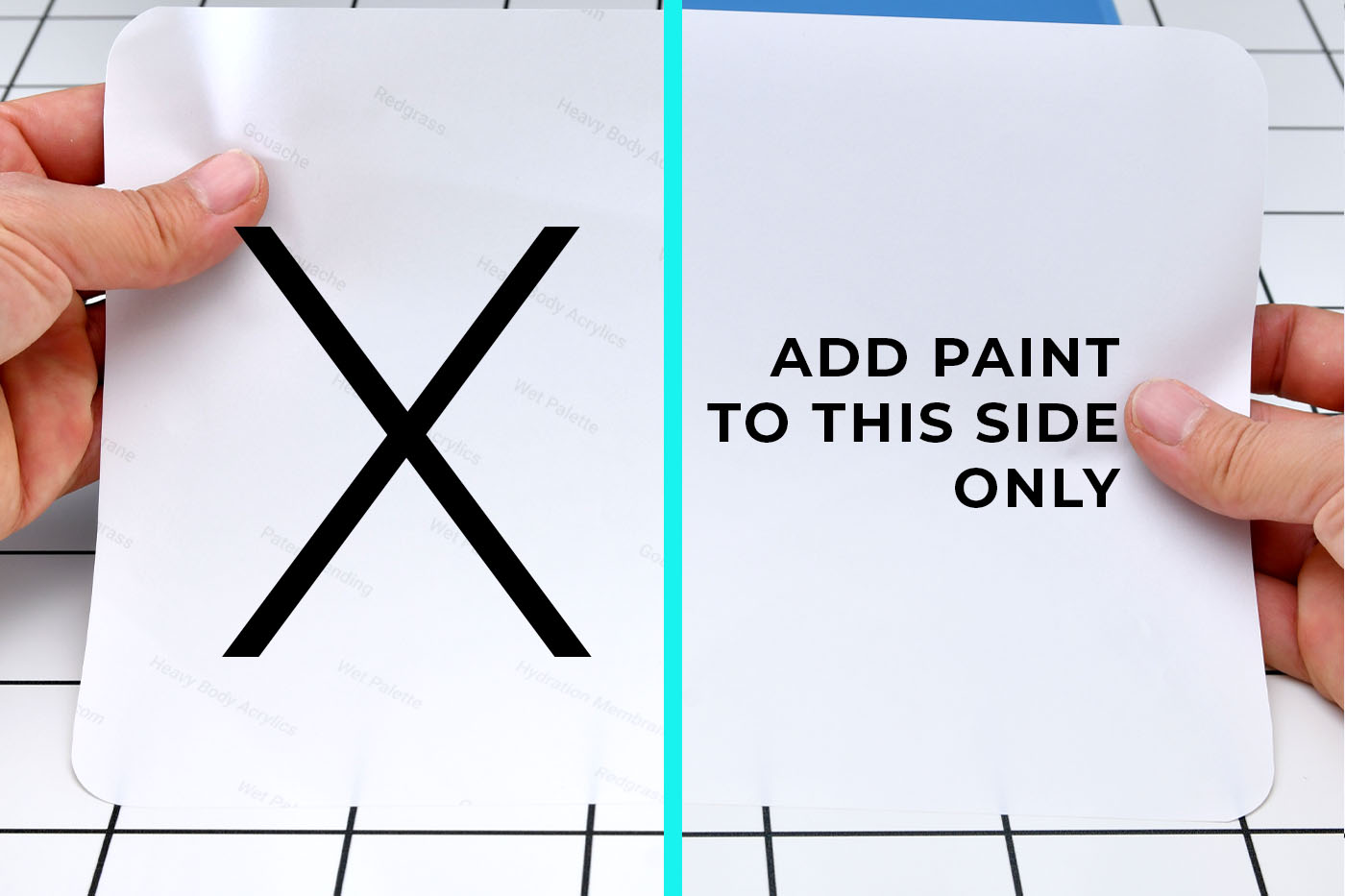
Take one hydration membrane. Fine-Art membranes are one-sided. The blank side should face up. The printed side is the back side.
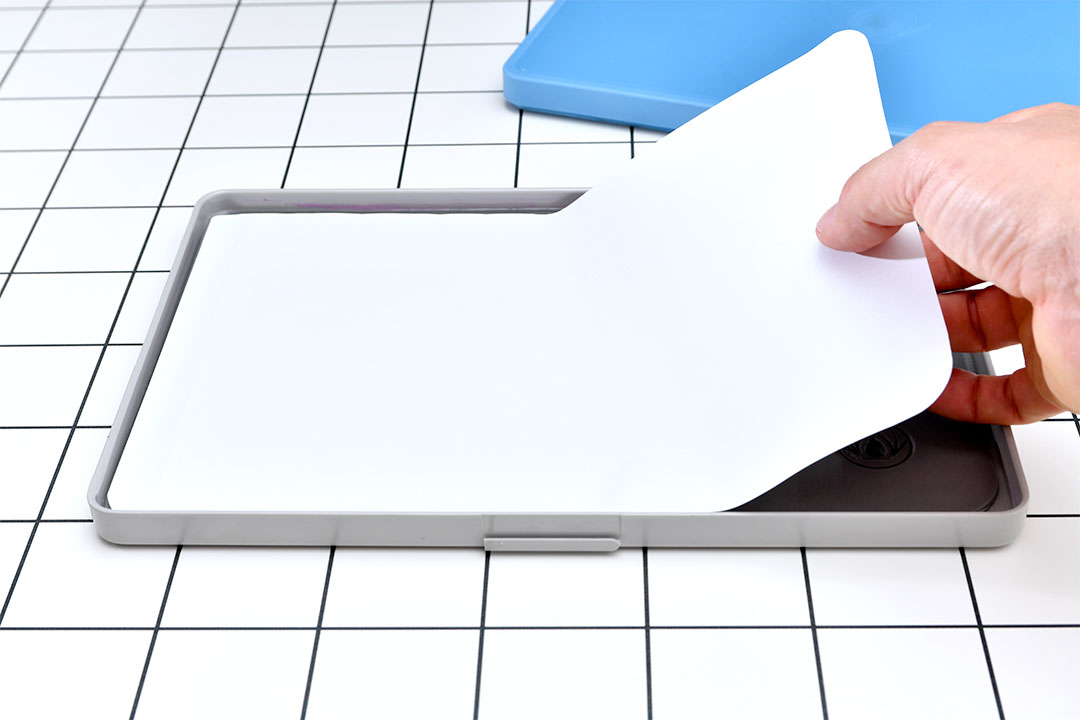
Apply your hydration membrane: Ensure the membrane lines up with the foam pad and is in contact with it, without any water on top.
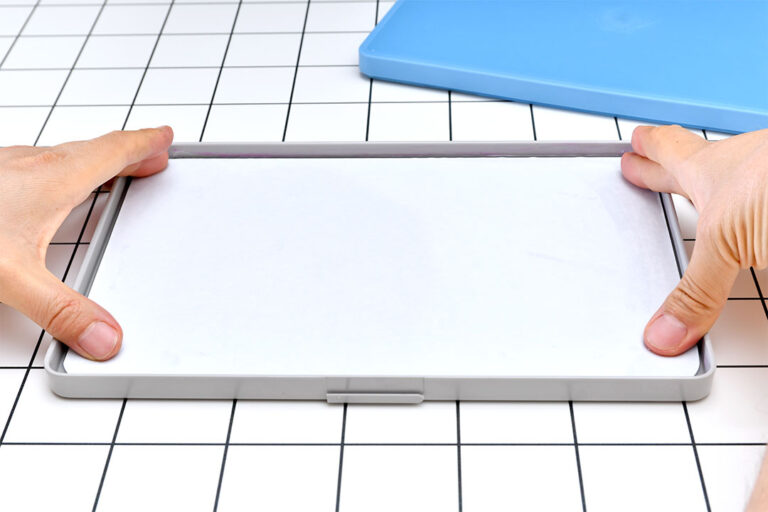
If necessary, smooth out the paper sheet with the side of your hand to remove any curling or bubbling.
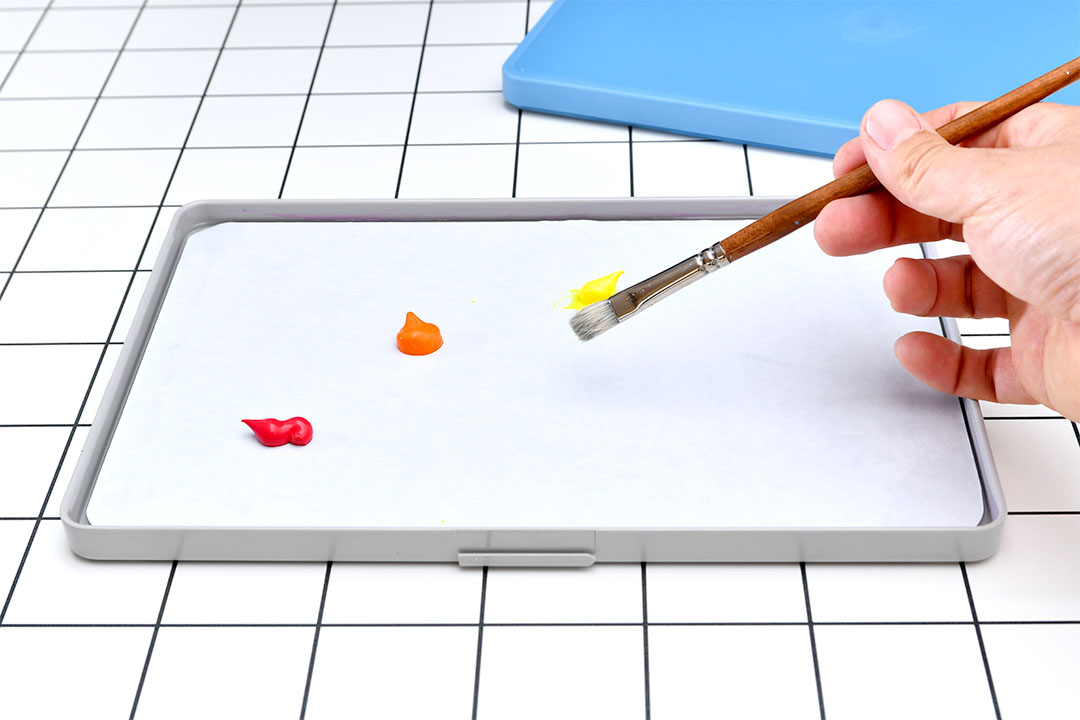
Start painting!
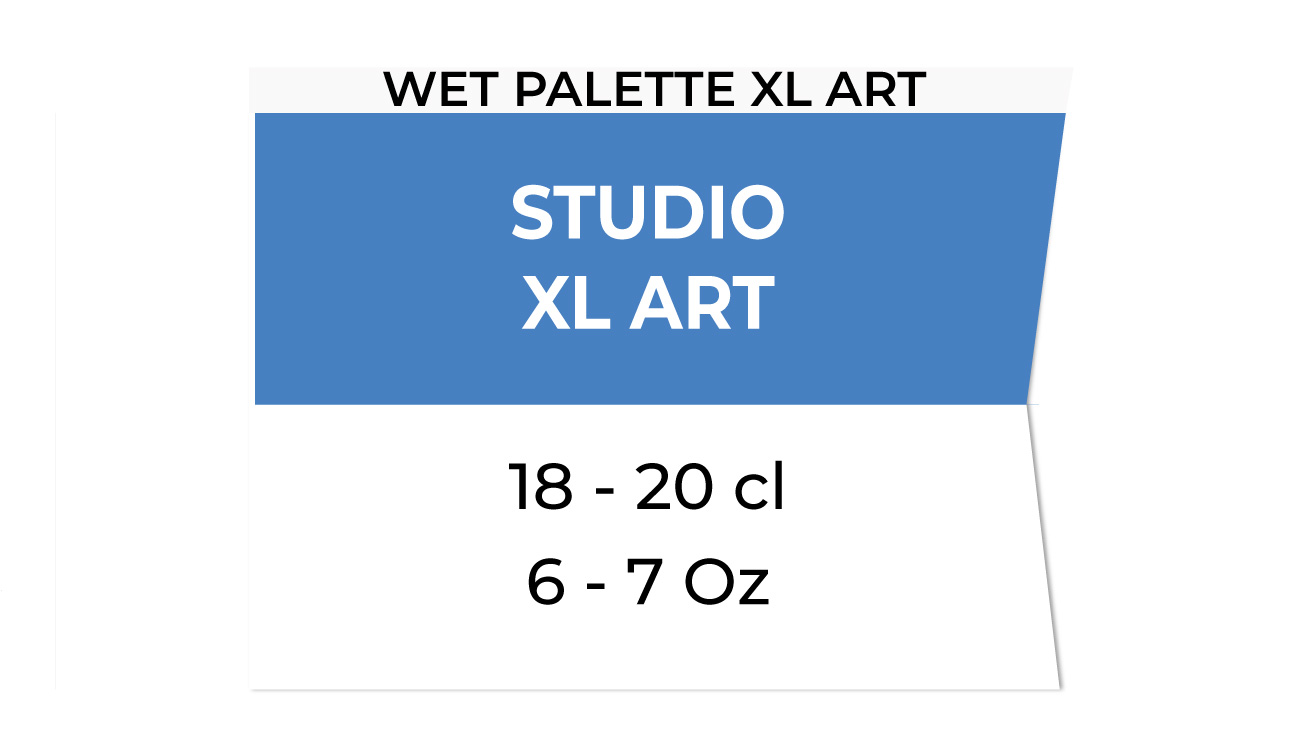
Don't forget to top up your water every couple of hours!
What’s superior about Everlasting Wet Palettes is our unique hydration system. Designed in 2017, it is still the best wet palette for miniature painters and hobbyists alike. In 2021, we have revolutionized the wet palette again by creating the first reusable hydration membrane.
The Everlasting wet palette will save you time, and prevent paint waste. Paint stays workable for longer. Also, an Everlasting Wet Palette from Redgrass gives you access to advanced painting techniques, such as blending and glazing. Used by almost every pro-painter and youtuber that count, you can find many painting tutorials and tips featuring the Everlasting wet palette!
Our Everlasting Wet Palette series was designed to be used with acrylic hobby paints used in miniature painting. Over the years it has been tested extensively with these types of paints, in particular: Citadel, Vallejo/Prince August, P3, Army Painter, AK, Kimera, Darkstar, Scale 75, … and at different levels of dilution with water or acrylic glazing mediums.
Tip: If you are using really dry acrylics or heavy body paints, we suggest you check out our RGG Glass Palette as a more suitable tool for your painting.
You can easily clean your wet palette with a little bit of warm water and dishsoap. Any mould growth can be neutralised with a vinegar solution.
If you want to remove cured acrylic paints from your wet palette case or accessories (NOT the foam) please use only the following tested cleaning solutions: ISOPROPYL ALCOHOL, ISOPROPANOL, 2-PROPANOL, ALCOOL ISOPROPYLIQUE.
The foam is naturally mold resistant. You don’t need to add any agent or cleaning product to avoid mildew, mold or bad smell. However, nothing is 100% mould proof so we recommend to clean the foam pad with a little bit of water and dishsoap from time to time. Any mould growth can be neutralized with a vinegar solution.
All non-recommended alcohol or spirit may damage or even destroy your wet palette!
Yes! When the foam is not in contact with water, it will dry out and go stiff. This is perfectly normal! Follow Steps 1-3 of our ‘Quick Setup’ above to restore your foam pad to its optimal state.
The closing mechanism of the wet palette is composed of a TPE seal and a strap band. Always use the strap band to remove any remaining gap between the top lid and the bottom part. With the strap band on, you can keep your paints wet for days, even more. With these Everlasting Wet Palette Tips you are good to go! We also have more YouTube videos you can try!
Check out our webstore or blog posts for more.
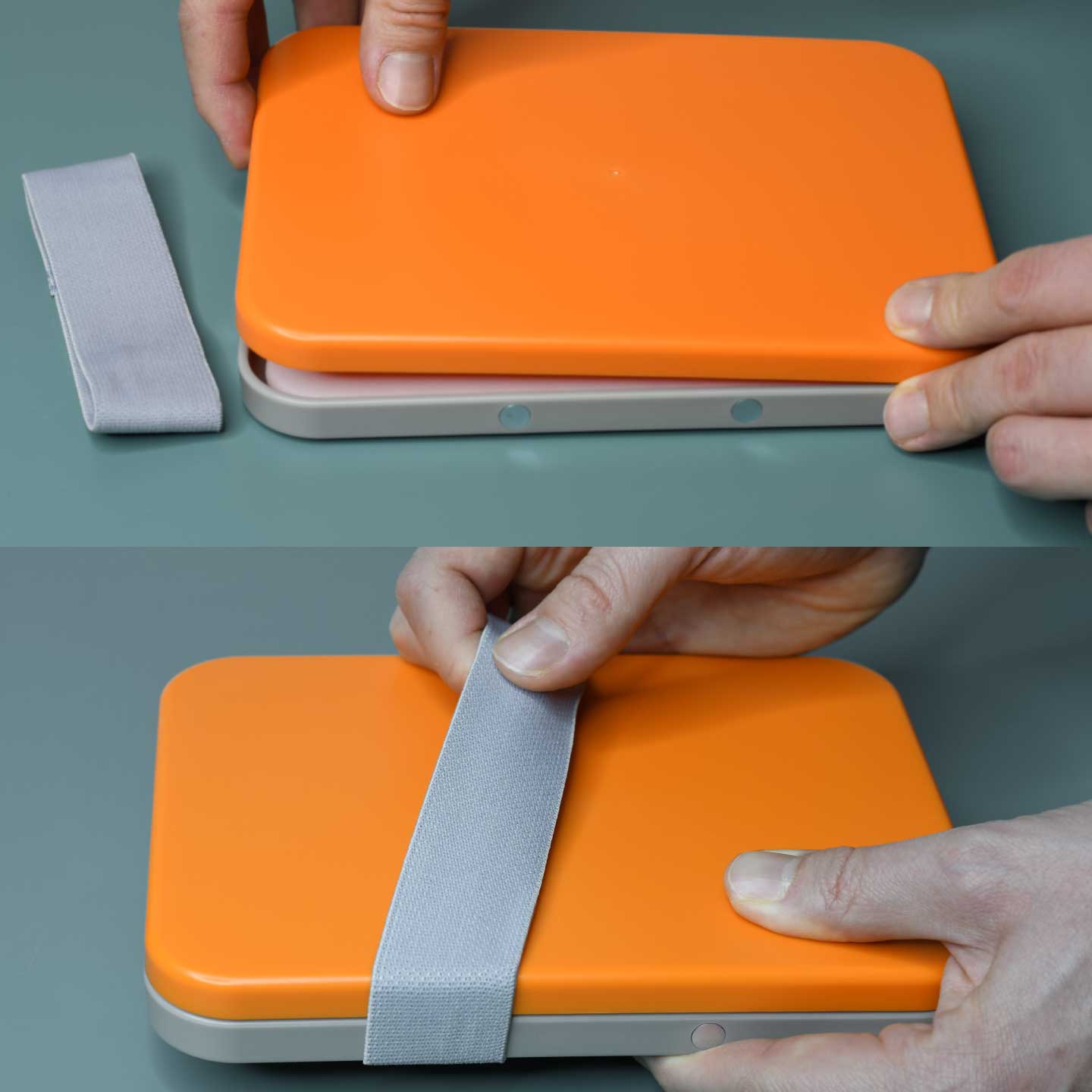
Once you are ready to dispose of your current paper sheet and start a fresh one, you can dispose of the older hydration sheet as you would do any other soiled paper & card materials, in line with your local legislation on waste disposal and paint waste.
Painter Lite, XL Studio, v2 Painter...
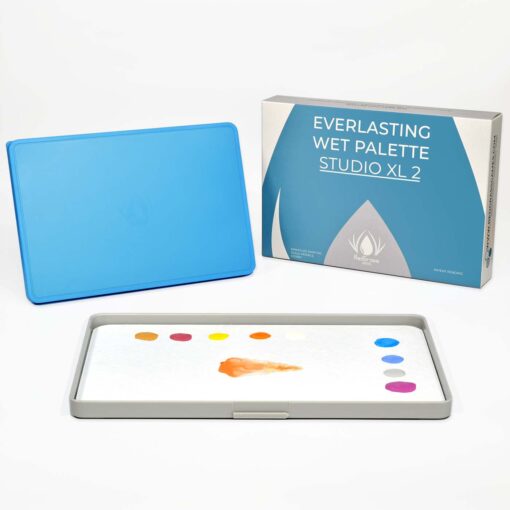
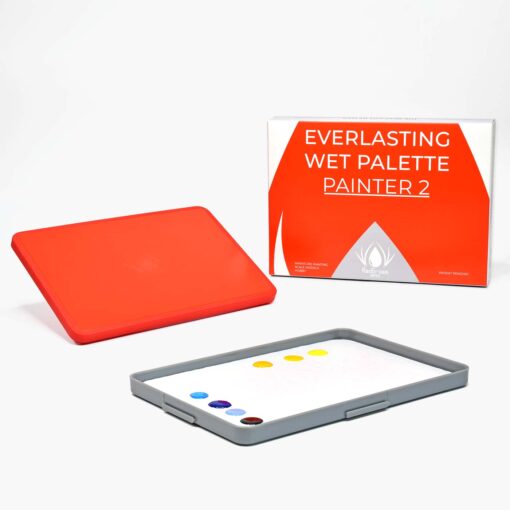
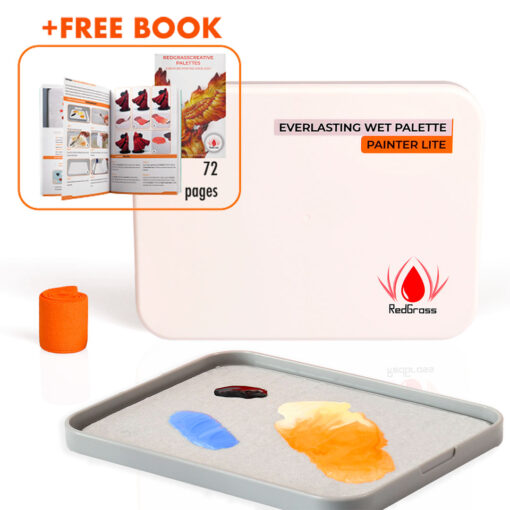
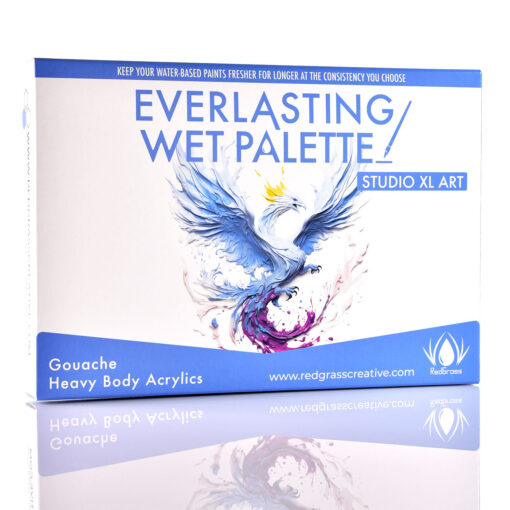
Consult the privacy policy